QTPiE Leadership:
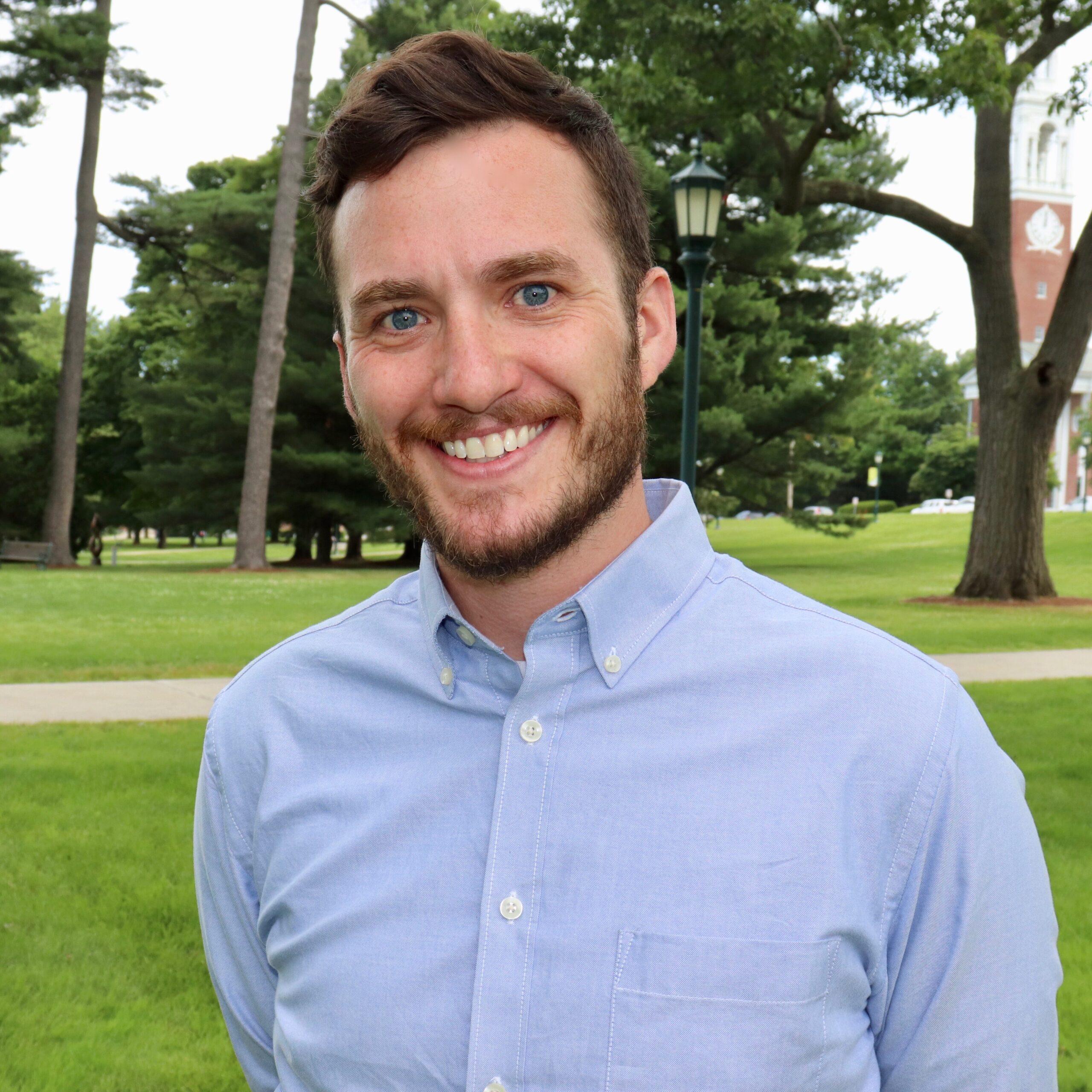
Executive Director, Office of Institutional Research and Assessment
Friedman-Hipps Green and Gold Associate Professor of Education
University of Vermont
Jason C. Garvey, Ph.D. (he/him/his)
Dr. Jason C. Garvey (he/him/his) is the Executive Director for the Office of Institutional Research and Assessment and the Friedman-Hipps Green and Gold Associate Professor of Education. As an interdisciplinary researcher, he uses his expertise in student success, teaching and learning, education policy, and statistics to merge data-informed decision making with social change and impact in higher education.
Dr. Garvey is the Principal Investigator for QTPiE: Queer and Trans People in Education, a multi-institutional research team with a mission to educate, advocate, and build coalitions that advance equitable policies and practices for queer and trans people in education. He is a 2024 Senior Scholar with ACPA: College Student Educators International and a 2023 Fulbright Scholar with the British Library in the United Kingdom. Dr. Garvey received his PhD in College Student Personnel Administration from the University of Maryland with a certificate in Measurement, Statistics, and Evaluation.

Associate Professor,
School of Teacher Education and Leadership,
Utah State University
Mario I. Suárez, Ph.D. (he/him/él)
Dr. Suárez is an Assistant Professor in the School of Teacher Education and Leadership in the Emma E. Jones College of Education and Human Services at Utah State University. Informed by his experiences as a former high school mathematics teacher and an openly trans man, Mario’s intersectional research agenda broadly asks: How does our understanding(s) of gender and sexuality shape K-12 educational experiences (e.g., standards, curriculum, bathrooms, group placements, sports, STEM, teachers and teaching) for minoritized (e.g., BIPOC, trans, non-binary) students? He tries to answer this question through a primarily critical quantitative lens using nationally representative data, though he also draws on qualitative methods when large data is not available. His most recent work challenges notions of how trans and non-binary youth identities are measured in large-scale surveys used in education research. His work draws from the fields of sociology, demography, gender studies, and policy studies. He received his PhD in Curriculum and Instruction from Texas A&M University with a certificate in Education & Social Sciences Advanced Research Methods (Quantitative).
Mario has been working with both Jay and Dolan for over 2 years and has found amazing friendships with them, which he is extremely grateful for. As a trans Latinx junior scholar doing queer and trans research in K-12 education, he hopes to continue finding community with other queer and trans scholars, as well as pay forward all the opportunities and support he has received throughout his career.
Dr. Suárez is very excited to lead the Emerging Scholars fellows this summer 2023 because he hopes to be able to contribute to expanding the number of critical queer researchers doing this QT work in K-12 contexts. He hopes to be a resource as a former high school AP statistics teacher who has used a myriad of pedagogical strategies to support students learning statistical analyses and interpretations.
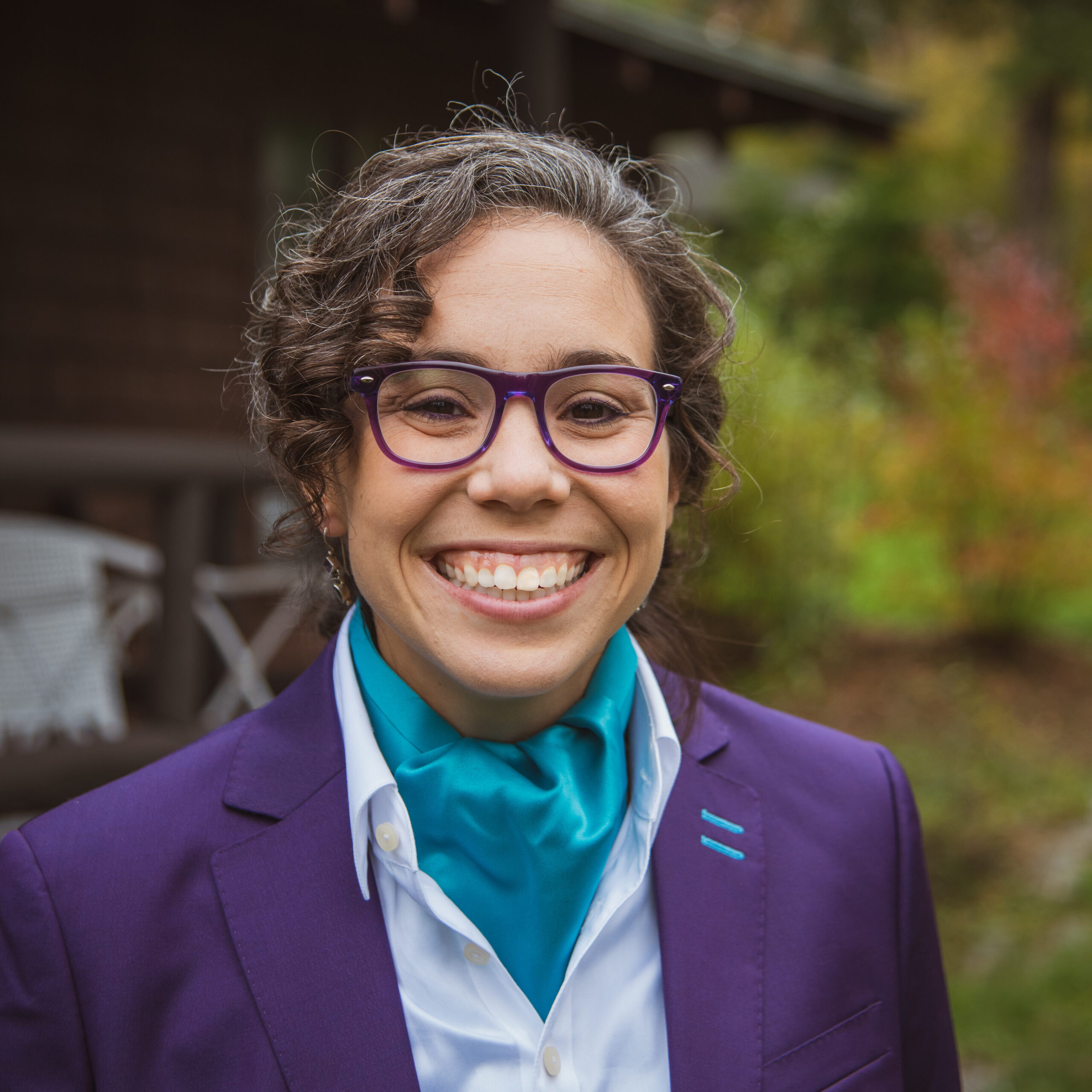
Postdoctoral Researcher
Office of Institutional Research & Assessment,
University of Vermont
C. V. Dolan, Ph.D. (they/them/theirs)
Dolan (they/them/theirs) a 2024 graduate of the Educational Leadership and Policy Studies Ph.D. program at the University of Vermont. Their dissertation research focus is nonbinary BIPOC college students’ freedom dreams of gender utopia in a post-secondary landscape. Dolan is an aspiring mixed methodologist with the long-term goal of serving as a tenure-track faculty in a HESA graduate program upon completing their doctoral degree in 2023. Following their M.Ed. in HESA at UVM in 2013, Dolan worked for six years as a QT resource professional on college campuses. Dolan also served on a national board as the Trans and Genderqueer Chair for the Consortium of LGBT Resource Professionals in Higher Education, in addition to local community organizing.
Dolan is immensely grateful for Jay’s mentorship as their advisor, and they feel very blessed to co-author with Jay and co-teach with him in the HESA program. Dolan’s identities as a nonbinary and bisexual queer person motivate their scholarship, as they recognize gaps in data collection and identify opportunities for more attuned data analysis when cisgender scholars study trans and nonbinary communities and interpret their findings through cisnormative lenses. Dolan is also a white and Latinx person who navigates the complexities of being seen, recognized, or misinterpreted in their identities and the nuances of fluidity for their race, gender, and sexuality. Epistemologically and ontologically, Dolan values critical race theory, intersectionality, and indigenous paradigms. Specifically, they feel obligated to center the most marginalized and consistently seek to de-center dominance in their teaching, research, and practice. In these ways, Dolan defines, approaches, and works toward collective queer and trans educational liberation.
Affiliate Scholars:
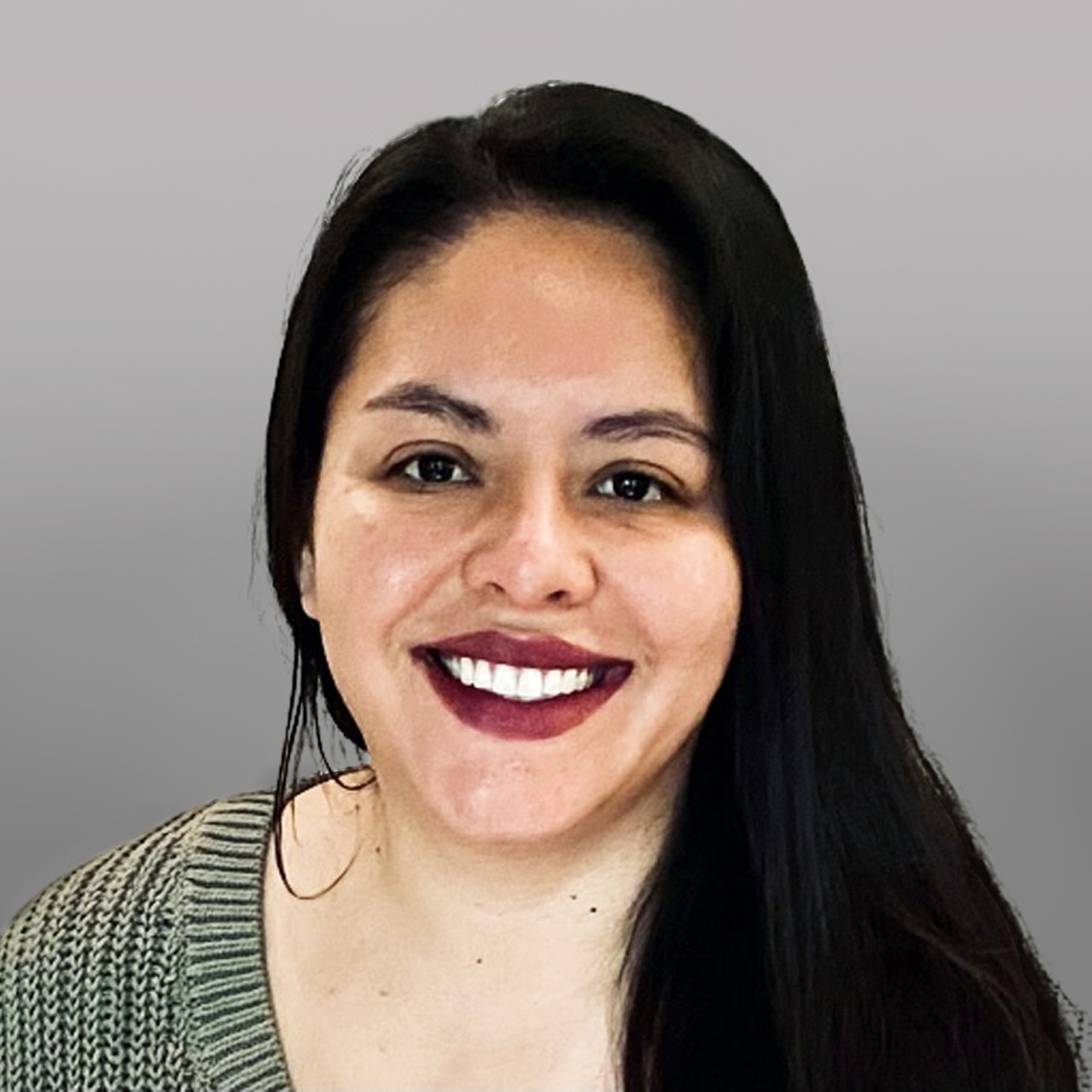
Educational Foundations, Policy and Practice Program,
University of Colorado, Boulder
Danielle N. Aguilar (she/her/hers)
Danielle is a PhD student in CU Boulder’s Educational Foundations, Policy and Practice Program. Guided by critical race theory and feminist of color theories, her research intentions are to examine how girls of color intersect and are intersected by the carceral system. Danielle’s previous research has been embedded in qualitative approaches, e.g. photovoice, testimonio, interviews, and has focused on women of color student activist and LGBTQ faculty and staff of color experiences at colleges and universities. Danielle is working to develop critical quantitative skills to complement her growing knowledge of qualitative methods. Danielle aspires to be a tenure-track professor who uses critical methodological approaches and inspires and mentors marginalized students to use quantitative methods. Prior to enrolling in a PhD program, Danielle worked in residence life, orientation, multicultural and LGBTQ affairs, and pre-college support programs. Danielle holds an M.Ed. in Higher Education and Student Affairs Administration from the University of Vermont and a B.A. in Feminist Studies and Minor in Black Studies from the University of California, Santa Barbara. Danielle was born and raised in the Inland Empire of California.
Danielle is excited and grateful to be a part of the QTPiE Emerging Scholars Program. Danielle joined QTPiE to develop queered quantitative methodologies and perspectives, and establish meaningful relationships with other critical quantitative scholars. Danielle sends gratitude to the folx who labored with love, glitter, and rainbows to establish and continue QTPiE.
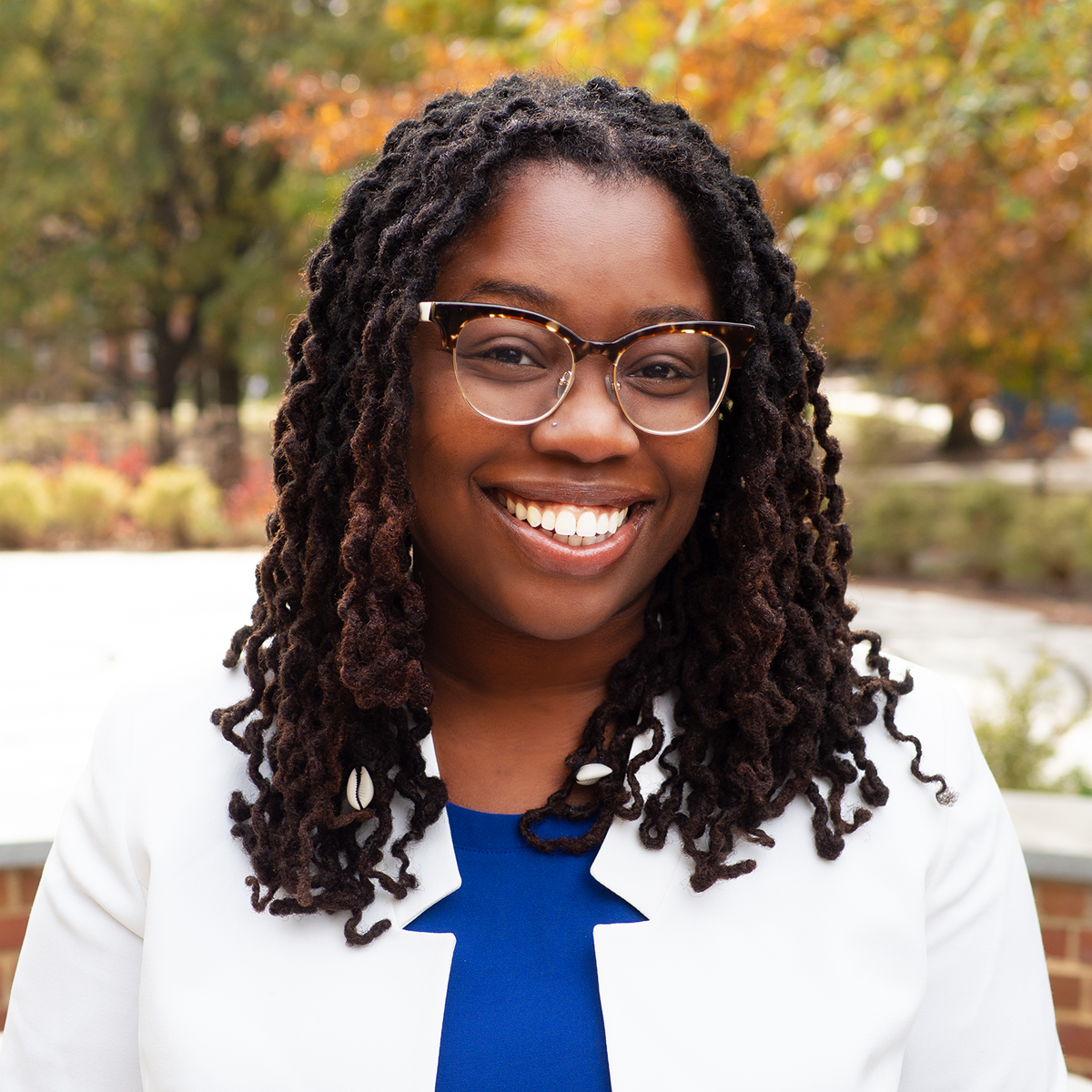
Higher Education, Student Affairs and International Education Policy Program,
University of Maryland
Lorae Bonamy-Lohve (she/her/hers)
Lorae V. Bonamy-Lohve (she/her/hers) is a third-year Ph.D. candidate in the Higher Education, Student Affairs, and International Education Policy program at the University of Maryland. She is also a 2022-2026 Point Foundation Flagship Scholar.Her research interests include racialized religious oppression, racialized heterosexism, racialized cisgenderism, student organizations, and inclusive campus environments. Lorae’s long-term career goal is to work as a faculty member in a Higher Education/Student Affairs graduate program, and the goal of her work is for queer people of color and faith to be fully loved in families, faith communities, and institutions of higher education.
Lorae is oriented to the world as a qualitative scholar and human scientist, and her dissertation project is a phenomenological inquiry into the lived/living experiences of Black queer Christian college students. Since receiving her Master’s degree in Higher Education Counseling from West Chester University of Pennsylvania, Lorae has been employed full-time at the University of Maryland in various roles within the Division of Student Affairs. As a scholar and practitioner, Loraeuses an epistemology of love and pedagogies of resistance to blaze paths toward more inclusive environments for marginalized and minoritized students. In practice, this means problematizingsoulless systems of schooling that focus primarily on intellect and exchanging them for pedagogies that center community, individual empathic relationships, and cultivating the heart.
Lorae was initially drawn to QTPIE because of the focus on queer and trans people, but she remains connected because of the amazing people on the team and the opportunity to work alongside passionate scholars on important issues.
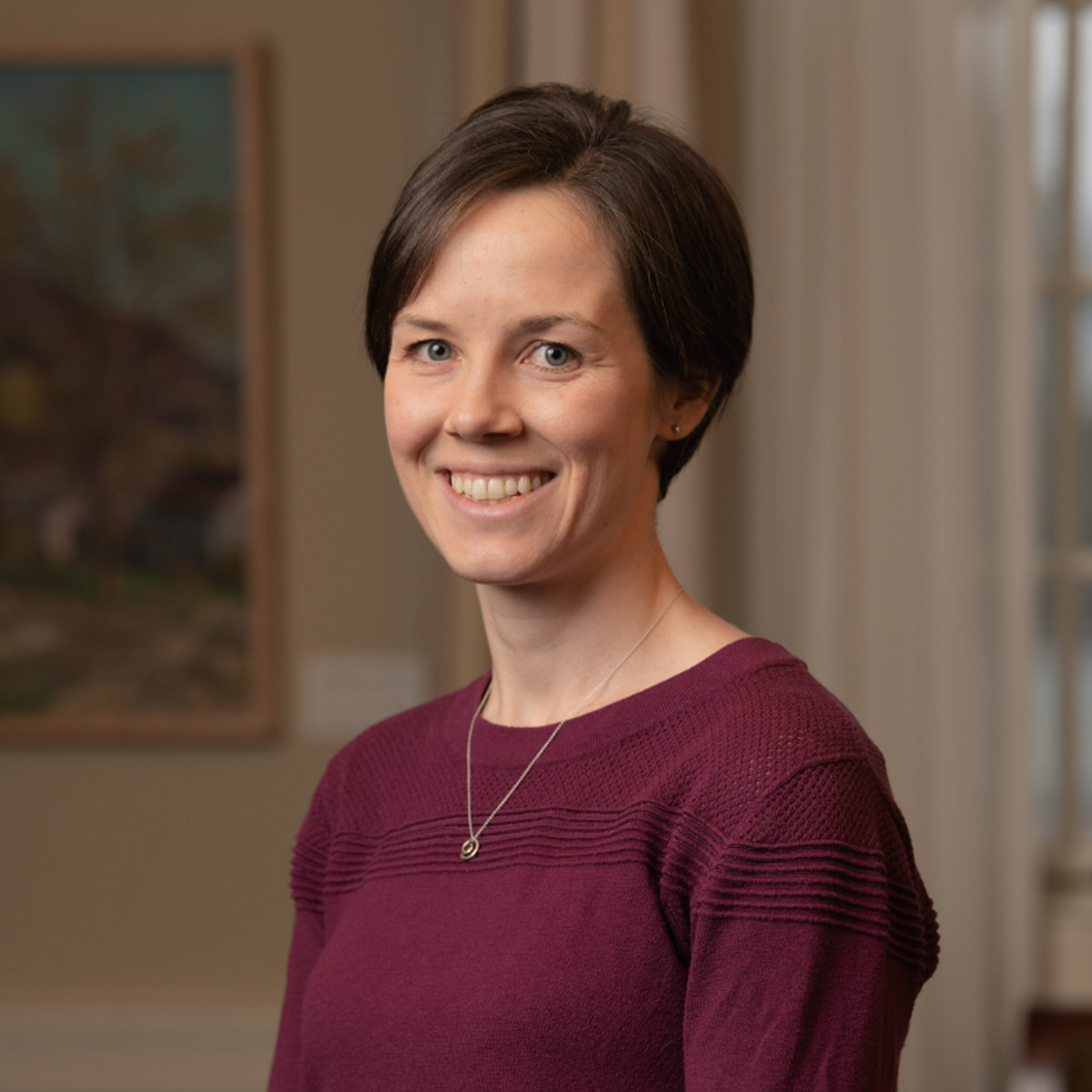
Education, Policy, Planning, and Leadership,
School of Education at William and Mary
Amanda Davis Simpfenderfer, Ph.D. (she/her/hers)
Amanda (she/her/hers) is an Assistant Professor in the Education, Policy, Planning, and Leadership department in the School of Education at William and Mary. She has a Ph.D. in Educational Leadership and Policy Studies from University of Vermont and previously she served as the Director of Assessment, Data, and Accreditation for the College of Education and Social Services. Amanda’s research foci includes issues of access and equity within higher education. She is an aspiring critical quantitative research methodologist interested in how quantitative methods can be used as a tool equity and justice rather than oppression.
Amanda has previously worked with Jay on research around campus climate and residential living for queer and trans students and has been lucky to have Jay as her faculty advisor for her dissertation. She is hoping to continue to build on her research skills by working with the research team and contributing to scholarship that uplifts QTPiE’s.
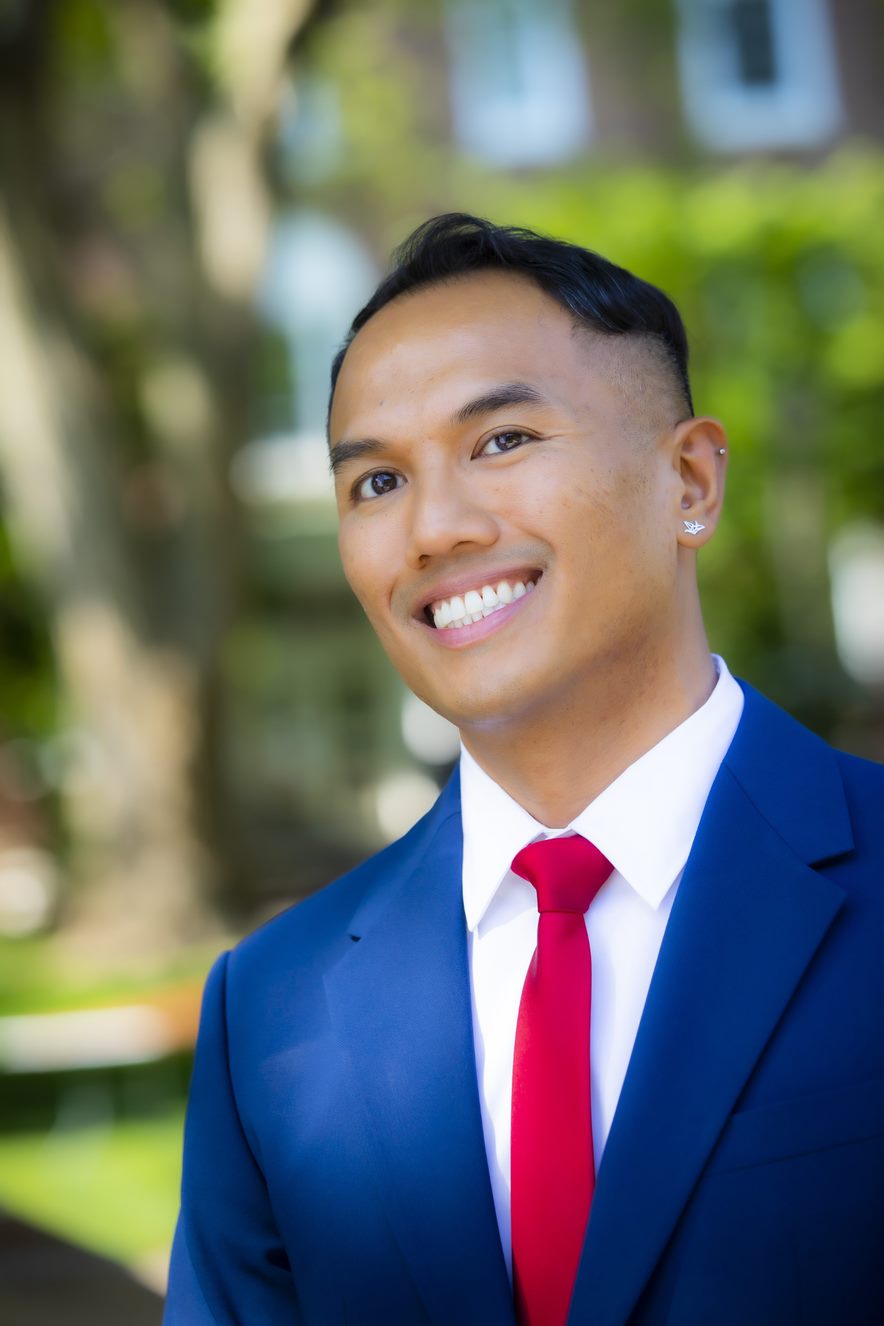
Stanislaus State University
Jude Paul Matias Dizon, Ph.D.
Jude Paul Matias Dizon, Ph.D., is a proud first-generation college student and son of Filipino postal service workers. He is an assistant professor of higher education and student affairs in the Rutgers Graduate School of Education.Dr. Dizon’s work examines the structural conditions that produce the contradictions experienced by racially minoritized students through qualitative methods and critical ethnic studies. His research agenda examines the carceral university, or the relationship between the carceral state and higher education with a focus on race, class, and gender inequities. Additional research areas include leadership and organization for equity and inclusion in higher education; cultural engagement and validation; and student activism. His work has been featured in theJournal of Higher Education, Journal for Diversity in Higher Education, Journal of College Student Development, and thePeabody Journal of Education. Dr. Dizon earned a Ph.D. in urban education policy from the University of Southern California, a master’s degree in higher education and student affairs administration from the University of Vermont, and completed his undergraduate education at the University of California, Berkeley.
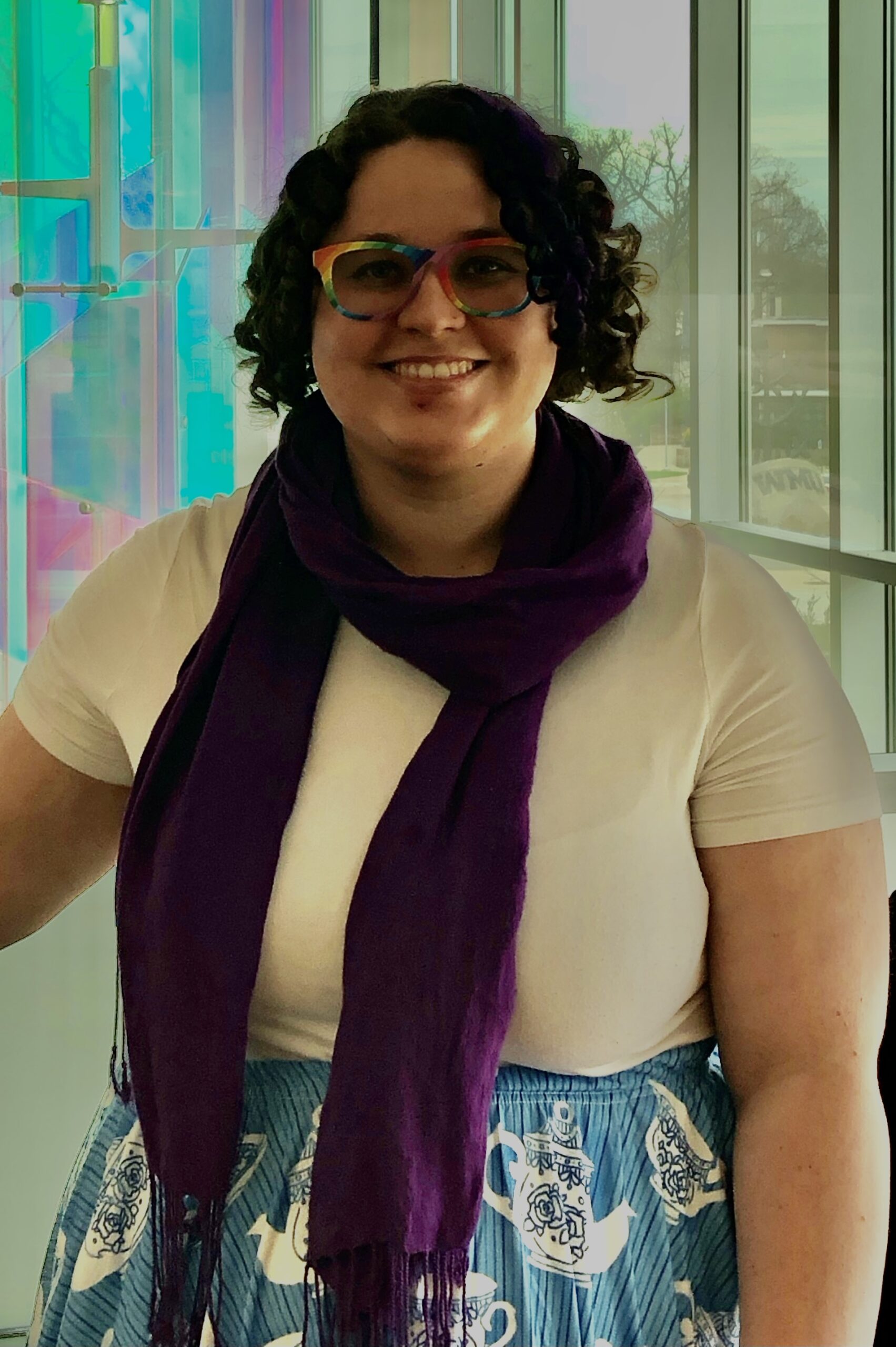
Texas State University
Madison Fitgerald-Russell (she/they)
Dr. Fitzgerald-Russell (she/they) is a Postdoctoral Researcher with the Department of Physics at Texas State University, where they work with the NSF-funded project Furthering the Work of STEM Undergraduate Transformation: Modeling Instructional Change Teams and the NSF-funded initiative the STEM Communities Project. She recently graduated with a PhD in Science Education: Physics from Western Michigan University, where her dissertation qualitatively explored the experiences and perceptions of queer-science major undergraduate students through a queer theory and intersectional lens. Their research goals include creating spaces for inclusion in and expanding equity of STEM education for marginalized folks in both K12 and higher education, focusing on queer and trans folks.
Madison has been involved in efforts to support diversity, equity, and inclusion efforts in STEM, including serving on three conference organizing committees (CUWiP @ WMU 2022, PERC 2022: Queering physics education, and PRIMSATIC) and as a panelist for workshops (LGBTQIA Panel for CUWiP 2022 and 2023).
Madison is excited to expand their quantitative skills related to STEM education and with K12 specific work with QTPiE during Summer 2023, and to learn from Jay, Mario, and Dolan and the other selected scholars. She hopes the lessons learned in this program will be applicable both to her immediate projects and to future work.

Howard University
Arsene Frederic, Jr. (he/him/his)
Arsene Frederic, Jr. is a 3rd-year doctoral student in the Howard University Higher Education Leadership and Policy Studies program. His research focuses on STEM education, Education Policy, Workforce Diversity, and Education Equity. Arsene serves as a Graduate Assistant in the Howard University Education Leadership and Policy Studies department. Currently, he is a research associate for The Historically Black Colleges and Universities (HBCU) Fellowship Project, which aims to expand research funding for HBCU faculty in the Social Science and humanities disciplines.
Recognized as an Association of Public Policy Analysis and Management Equity and Inclusion Fellow in 2020, Arsene’s accomplishments also include successfully completing the grant and fellowship writing micro-credential from the Howard University Graduate School. This achievement significantly contributes to his research aspirations. Before pursuing academia, Arsene gained experience in public sector roles with the U.S. Department of Housing and Urban Development, Prince George County Public Schools, New Orleans Public Schools, and on Capitol Hill as a Congressional Black Caucus Foundation Congressional Fellow.
Arsene embraces his African American and Haitian cultural identities. As a scholar-practitioner, he is deeply committed to leveraging his background to promote evidence-based decision-making through collaborative research partnerships. He eagerly participates in the QTPiE Emerging Scholars Program to advance quantitative scholarship that sheds light on degree completion challenges faced by queer and trans minority students in STEM.
Arsene holds a Master of Public Administration (MPA) degree with a concentration in Public Financial Management from the American University School of Public Affairs. He completed his bachelor’s degree in English with a minor in education from Florida State University.
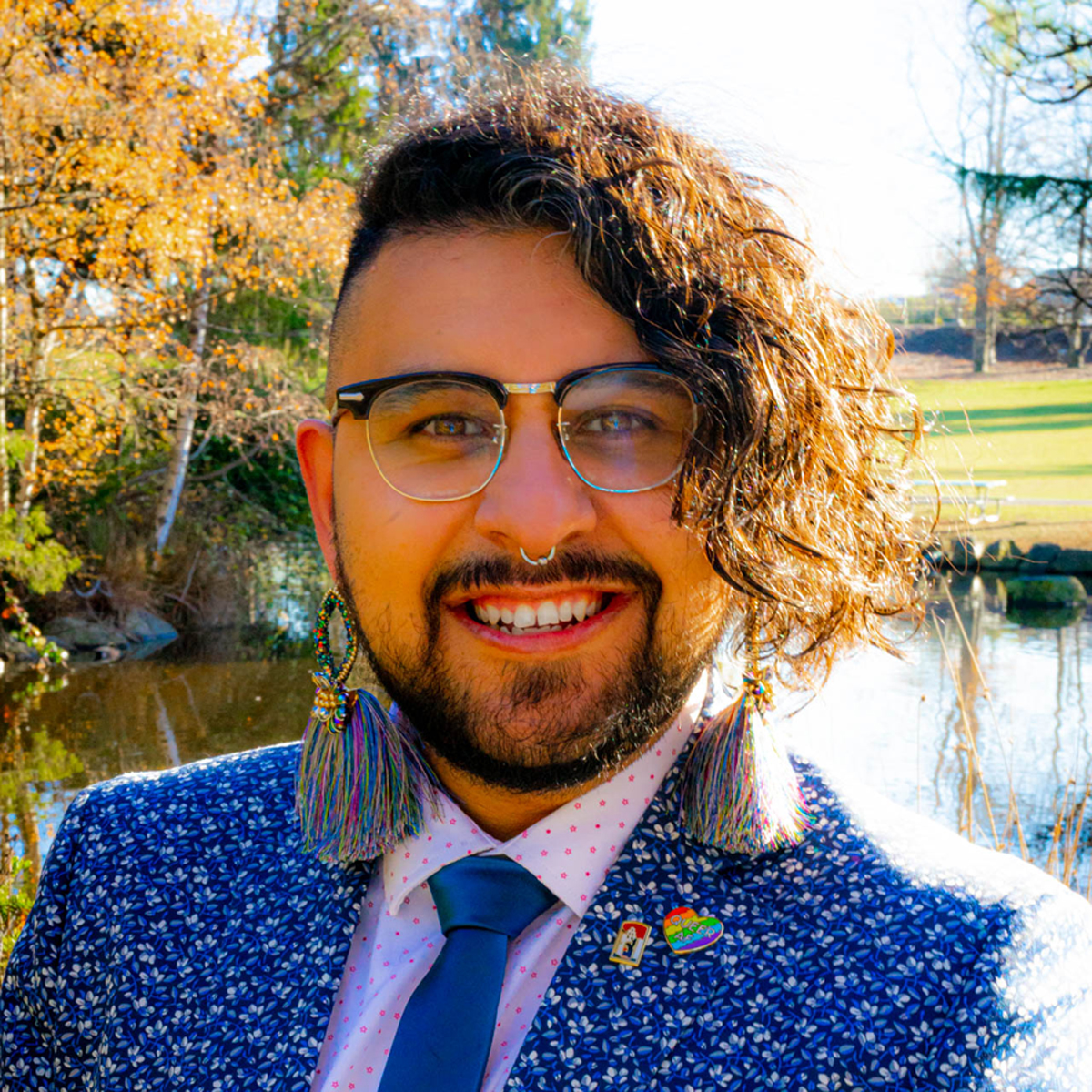
Fresno State University
Ángel González, Ed.D. (he/they/elle)
As a self-identified first-generation queer, joto, Latinx scholar, Dr. Ángel de Jesus González’s passion lies in making a difference in their comunidad through education. As a son of immigrant parents, Guadalupe y Miguel Ángel, partner to loving partner Luis, the brother to three sisters, a tío to seven nieces and nephews, his familia are the foundation and pillars of his success. Dr. Gonzalez is a Postdoctoral Research Associate in the Pullias Center for Higher Education at the Rossier School of Education, currently working on Refining Resources in Leadership Moves for Institutional Transformation funded by the Bill & Melinda Gates Foundation. Dr. González has worked across higher education and student affairs in various institutions and roles in both Washington and California, in particular the community college sector.
Dr. González’s research agenda foci include three strands; 1) conditions, experiences, and outcomes at community colleges queer and/or trans communities; 2) Latinx Leadership; and 3) racial equity policy implementation at community colleges. As an interdisciplinary scholar, Dr. González’s inquiry includes both qualitative and quantitative methods such as queer phenomenology, interviews, testimonio, focus group, queer chisme, critical policy analysis, descriptive analysis, survey design, and content analysis to name a few. Recent scholarly accolades includes selection to the Steps in Your Journey Postdoc Fellow at University of Arizona, The Dru Project a Spirit of Dru Scholar, and inaugural Summer Pedagogy Fellow at The Center for Black, Brown, and Queer Studies (BBQ+).His work on supporting the Latinx queer and trans community has been celebrated and acknowledged by a myriad of organizations. He was this year’s recipient of the NASPA Community College Division Research and Scholarship Award, ACPA’s Gender and Sexuality Coalition D.L. Stewart Research Award for their scholarship that advances queer and trans people of color well-being in community colleges and higher education.
Dr. Gonzalez serves as Board Member for Seattle LGBTQIA+ Latinx Organization, Entre Hermanos working to promote the health and well-being of the Latino Gay, Lesbian, Bisexual, Transgender, and questioning community in a culturally appropriate environment through HIV/AIDS prevention, education, support services, advocacy, and community building. Dr. Gonzalez received their Ed.D. in Community College Leadership and M.A in Post-Secondary Educational Leadership with a Specialization in Student Affairs from San Diego State University (SDSU) and received a B.A. from Whittier College where he doubled majored in Environmental Science and Spanish. Born and raised in South-East Los Angeles, like South Gate and Bell Gardens, California, Dr. González wants to empower individuals to reach their highest potential by fostering environments that advocate for diversity, equity, inclusion, and social justice
* * *
I engage with my scholarship through my own lived experiences, those that center minoritized identities who have been silenced by oppressive systems to advocate and accomplice for equitable realities and futures. I am excited about joining the QTPiE community to work with colleagues who can aid my quantitative inquiry methods in a collaborative manner that can transform higher education. As I continue my development as scholar, I know that both research methodological processes, qualitative and quantitative will be needed in order to achieve the pursuing of social justice as both a process and a goal to dismantle individual, institutional, and societal oppression. The literature around community college queer and trans communities is scarce with most studies being situated within the qualitative sphere. This is for a myriad of reasons but most obvious is the lack of data to capture these demographics and thus opportunity to interrogate community college structures. I want to learn from critical queer quantitative scholars who could challenge and guide me in a critical quantitative methods that will result in calls to action for institutional leaders.
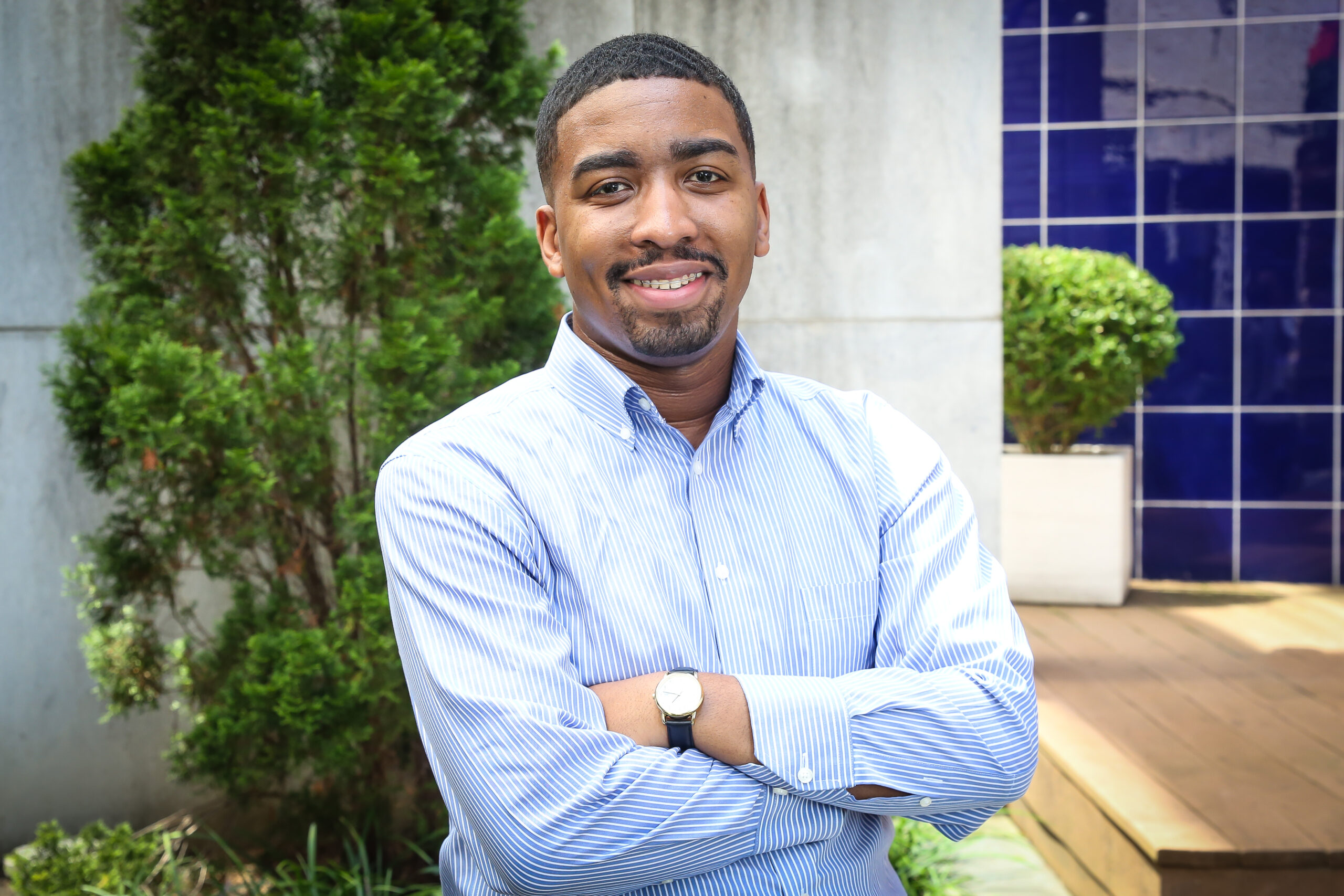
Howard University
Leslie Hall (he/him/his)
Leslie Hall (he/him) is a Ph.D. candidate in the inaugural cohort of the Higher Education Leadership and Policy Studies Program and a Graduate Assistant in the Center for HBCU Research, Leadership, and Policy at Howard University.
Leslie’s research interests are Informed by and rooted in the liberation of Black LGBTQ+ people and guided by critical perspectives, including organizational change, leadership, and quare theories. As a 2019 Just-Julian Research Assistant, he focused his dissertation on exploring how HBCUs to address, establish and support LGBTQ+ institutional advancement initiatives.
Under the mentorship and guidance of Steve Mobley, Ph.D., Leslie constructed the Queer and Trans* HBCU Student Engagement and Retention Practice Model as a tool to prompt dialogue and change at HBCUs as they consider how Blackness, queerness, and gender identities influence persistence and retention.
As a scholar–practitioner, Leslie links his epistemological perspective and scholarship to his role in leading the HBCU Program at the Human Rights Campaign, the largest LGBTQ+ civil rights organization.
As a proud double alum of HBCUs, Leslie earned his B.S. in Sociology from Bowie State University and Master of Social Work with a concentration in Community, Administration, and Policy from Howard University.
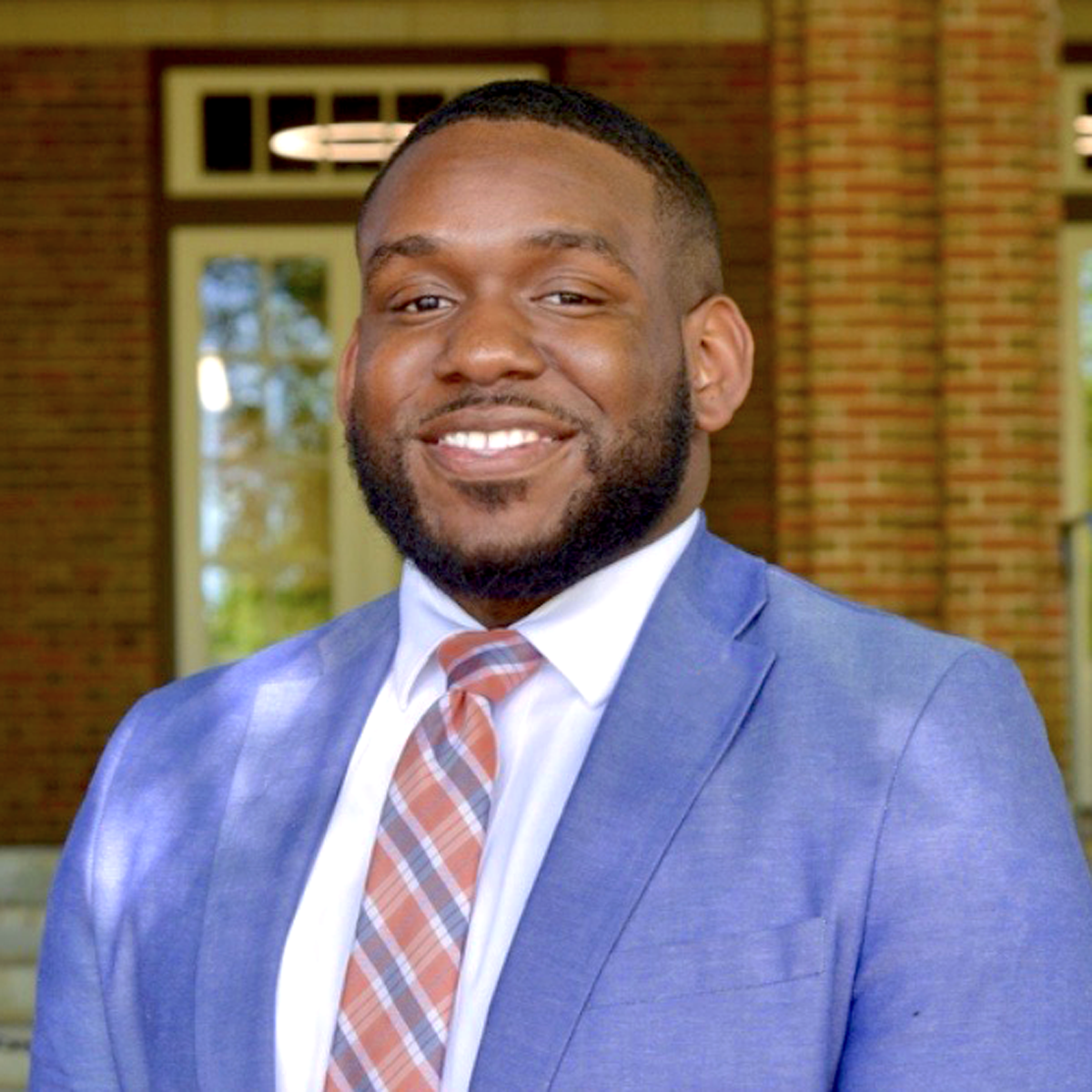
Higher Education and Student Affairs
Oklahoma State University
Dion Harry (he/him/his)
Dion T. Harry, Ph.D. (he/him/his) is an Assistant Professor of Higher Education and Student Affairs at Oklahoma State University. Dions research explores factors that impact college student success and well-being, primarily focusing on queer and trans students of color, broadening participation in STEM education, and students at community and technical colleges. He earned his doctorate from North Carolina State Universitys Educational Leadership, Policy, and Human Development program, with a concentration in Higher Education Opportunity, Equity, and Justice. He also has bachelors and masters degrees from Clemson University in Health Science (BS) and Counselor Education/Student Affairs (M.Ed.).
Dion joined QTPiE as a Black Quare Scholar with the opportunity to dive deeper into research centered on the experiences and well-being of Black queer and trans populations in higher education. Furthermore, Dion joined QTPiE as an opportunity to (1) enhance his own skills as a researcher and (2) to be in a community with scholars who are devoted to enhancing the experiences of queer and trans people within education!
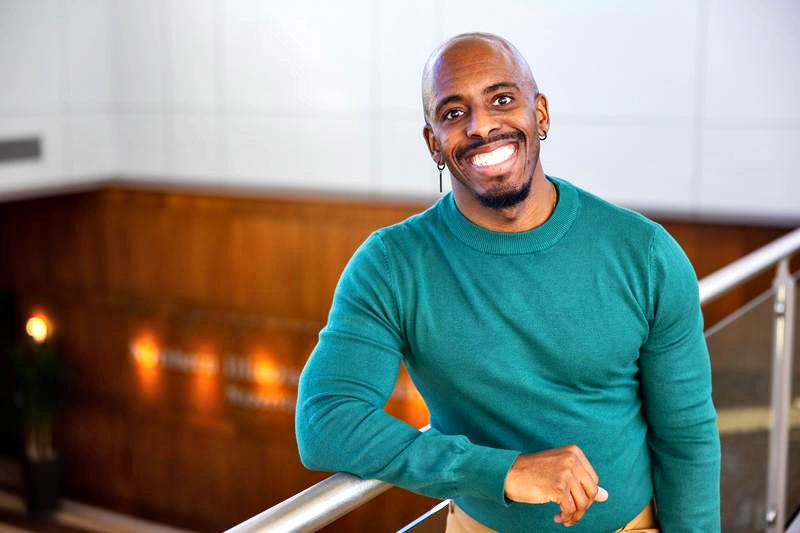
Northern Illinois University
Quortne Hutchings (they/them)
Quortne R. Hutchings (they, them) is a first-generation college graduate, proud Ronald E. McNair scholar alum, and assistant professor of higher education at Northern Illinois University. Dr. Hutchings has over nine years of higher education professional experience in academic advising, orientation, multicultural affairs, TRiO programs, and leadership development. Dr. Hutchings holds a Ph.D. in Higher Education from Loyola University Chicago, an M.Ed. in Education, Organization, and Leadership, with a concentration in Higher Education from the University of Illinois at Urbana Champaign, and a B.A. in African and African-American Studies, minors in Sociology and Human Development & Family Studies from the Pennsylvania State University.
Dr. Hutchings’s research primarily focuses on Black gay, bisexual, queer, and non-binary undergraduate and graduate students’ academic and social experiences in higher education, student affairs professionals’ experiences in student and academic affairs, utilizing gender and sexuality studies, intersectionality, and critical qualitative methodologies (e.g., queer phenomenology, arts-based research, and collaborative autoethnography). Quortne’s current work utilizes podcasting as a method and analytic approach to exploring Black gay, bisexual, and queer men’s experiences in men of color and Black male initiative (BMI) programs at higher education institutions. Their research has been published in the Journal of Autoethnography, International Journal of STEM Education, Journal of Critical Scholarship in Higher Education and Student Affairs, and International Journal of Qualitative Studies in Education.
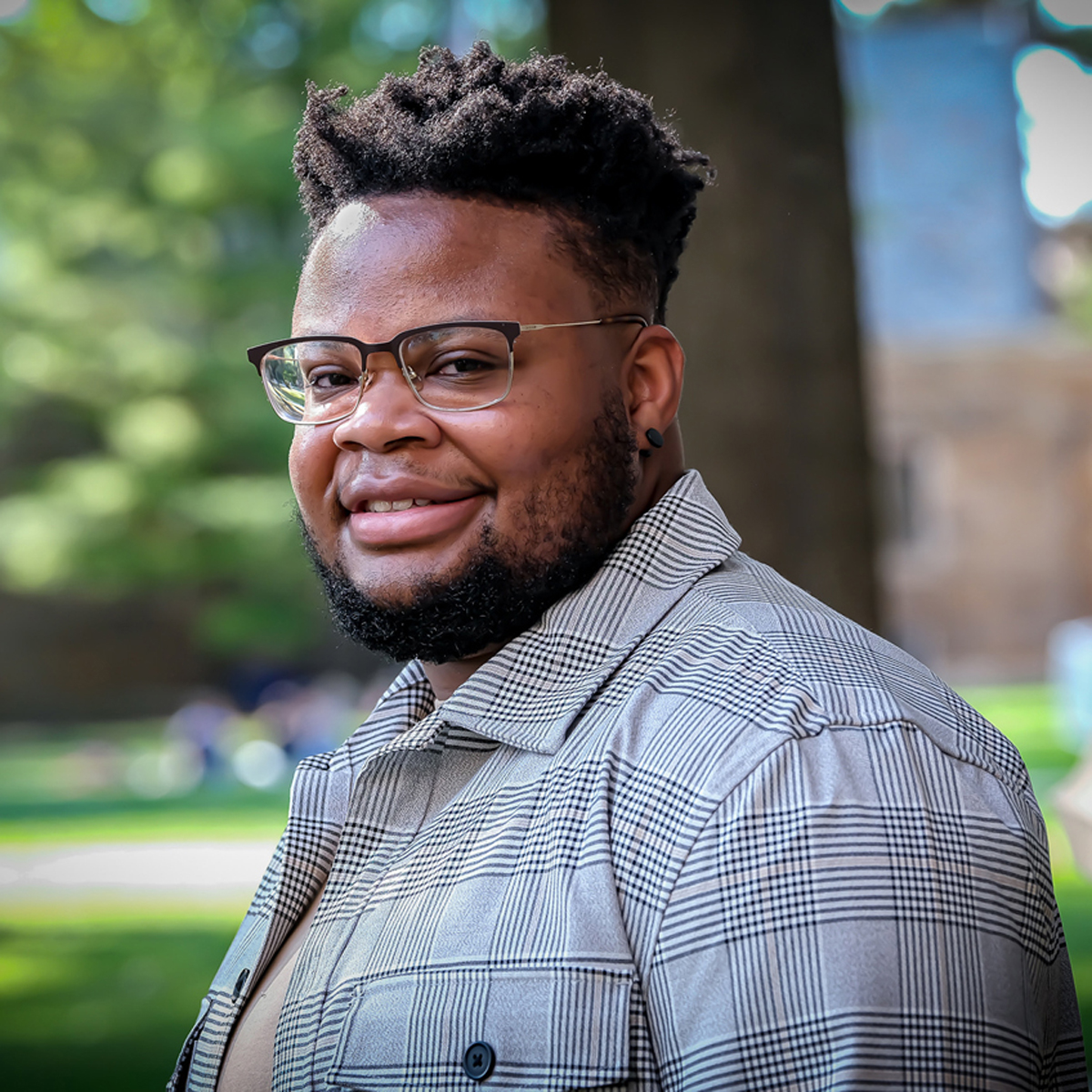
Center for the Study of Higher and Postsecondary Education,
University of Michigan
Taylor R. Lewis (he/him)
Taylor Lewis (he/him) is a Black trans scholar of West Indian heritage. He is currently a Ph.D. student in the Center for the Study of Higher and Postsecondary Education at the University of Michigan. Taylor’s research broadly explores race and racism, particularly Blackness and Anti-Blackness in higher education contexts through an intersectional lens with an emphasis on campus safety, resistance, activism, political power, life-making, and liberatory futures. Through his writing and research, he aspires to illuminate the margins of the margins and in the words of bell hooks, invite others into a “place of sanctuary in theorizing,” as we imagine theory as a “healing place.”
I’m interested in quantitative research, because the large sample sizes we can draw our analysis from tells a story in itself about the presence and existence of queer and trans people in higher education. I joined QTPiE, because this was the first opportunity for me to incorporate a critical lens in quantitative research methods and disrupt dominant paradigms in a community of scholars who are asking important questions that pushes our field forward. In academia, you can feel like “the only one,” questioning your intellectual abilities and belonging in these spaces, but QTPiE represented a life-affirming community that I wanted to take part in.
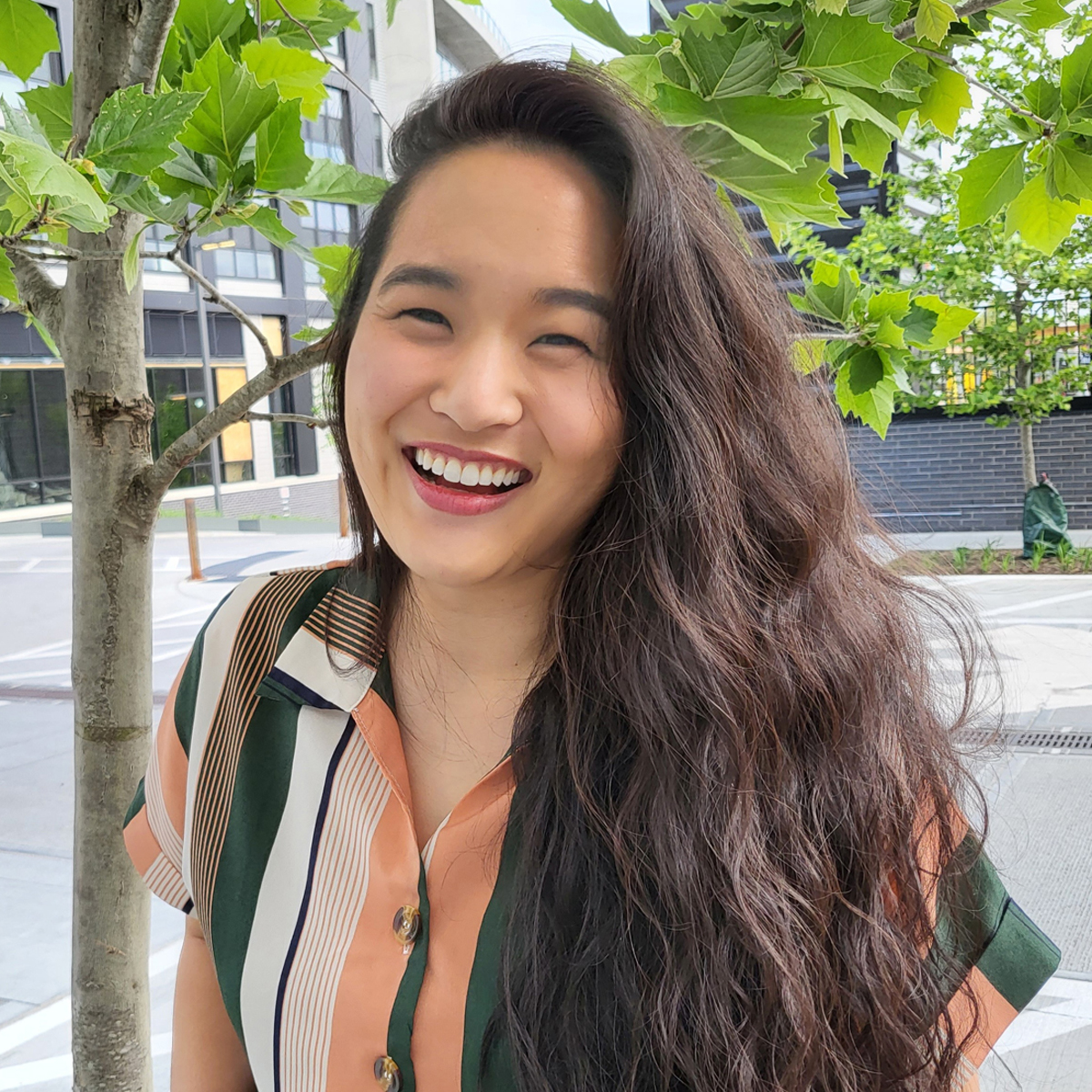
Higher Education, Student Affairs & International Education Policy,
University of Maryland,
College Park
Pearl Lo (she/her/hers)
Pearl Lo (she/her/hers) is a Ph.D. student at the University of Maryland, College Park in the Higher Education, Student Affairs & International Education Policy program with a concentration in Student Affairs. In addition to being a full-time student, Pearl is also a Research Assistant for UMD’s Department of Resident Life Research Division and the Graduate Assistant for the Student Affairs Concentration in the College of Education. Prior to her doctoral studies, she worked in various areas of student affairs including resident life, fraternity and sorority life, and student programming and advising. Pearl has two primary research interests– 1. Cross-racial interactions and friendship groups, particularly between Asian American students and their peers of color, how Asian American students navigate anti-Blackness, and Asian American racialization on college campuses. 2. The experiences and psychosocial development of LGBTQ+ women and trans students of color, navigating queerness in Asian America, and intersectional queer affirming spaces on campuses. She uses a mixed methods approach to conducting her research and hopes to apply a critical quantitative lens as well.
Pearl was thrilled when she saw the opportunity to work with QTPiE because she had long been searching for a community of scholars who focus on queer and trans students in higher education, especially through an intersectional and critical quantitative lens. In addition to enhancing her quantitative skills, she eagerly looks forward to developing connections with other like-minded folx with whom she can collaborate to advance queer and trans educational liberation.
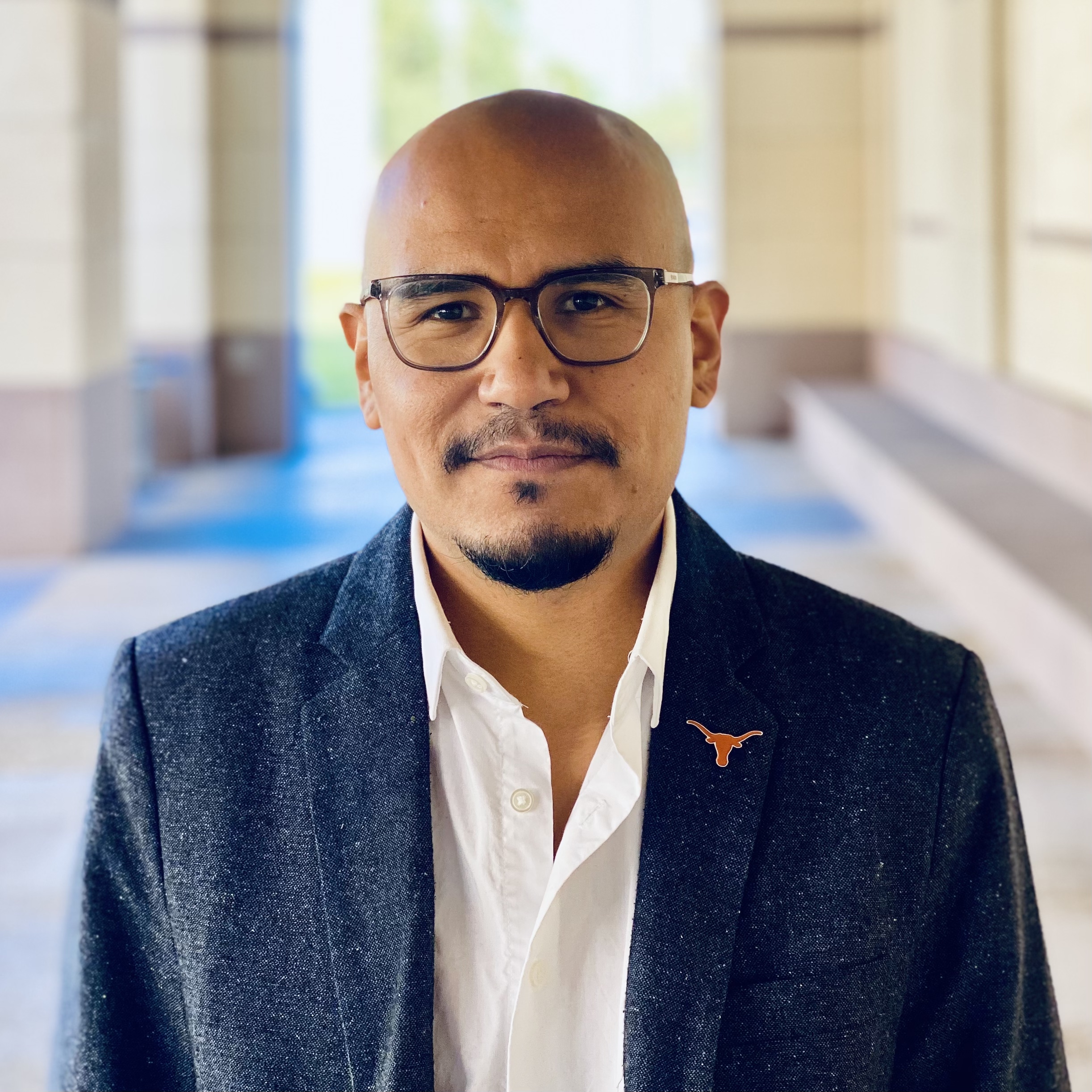
Higher Education Leadership
The University of Texas at Austin
Gabriel Rodríguez Lemus, Jr. (he/him/his/él)
Gabriel Rodríguez Lemus, Jr. (he/él)is a third-year doctoral student in the Program in Higher Education Leadership (PHEL) at The University of Texas at Austin with a graduate portfolio in Women & Gender Studies with a specialization in LGBTQ+ Studies. He is a Graduate Research Assistant for Project MALES, and a past teaching assistant for the Department of Educational Psychology. Gabriel is a 2021-2022 Chancellor Doctoral Incentive Program Fellow with The California State University and a Texas Association of Chicanos in Higher Education Graduate Fellow, as well as a 2023 Point Foundation BIPOC Scholar. He earned his M.S.Ed. in Higher Education & Student Affairs from Indiana University Bloomington and his B.A. in Sociology, concentration in Community Change from San José State University.
Gabriel’s work engages, complicates, & interrogates the ways Latinx/o masculinities is understood, specifically for Queer & Trans* Latinx/o people when navigating academe as it relates to their gender, ethnicity, sexuality, & dis/ability.As a QTPiE @ MSI Grant Scholar he will be materializing the lives of Queer & Trans* Latinx/o faculty at Hispanic Serving Institutions by collecting their Jotería-Historias. Ultimately, he hopes for a Queering of Hispanic Serving Institutions by bringing to life the lives of Queer & Trans* Latinx/a/o people utilizing Jotería epistemologies and pedagogies.
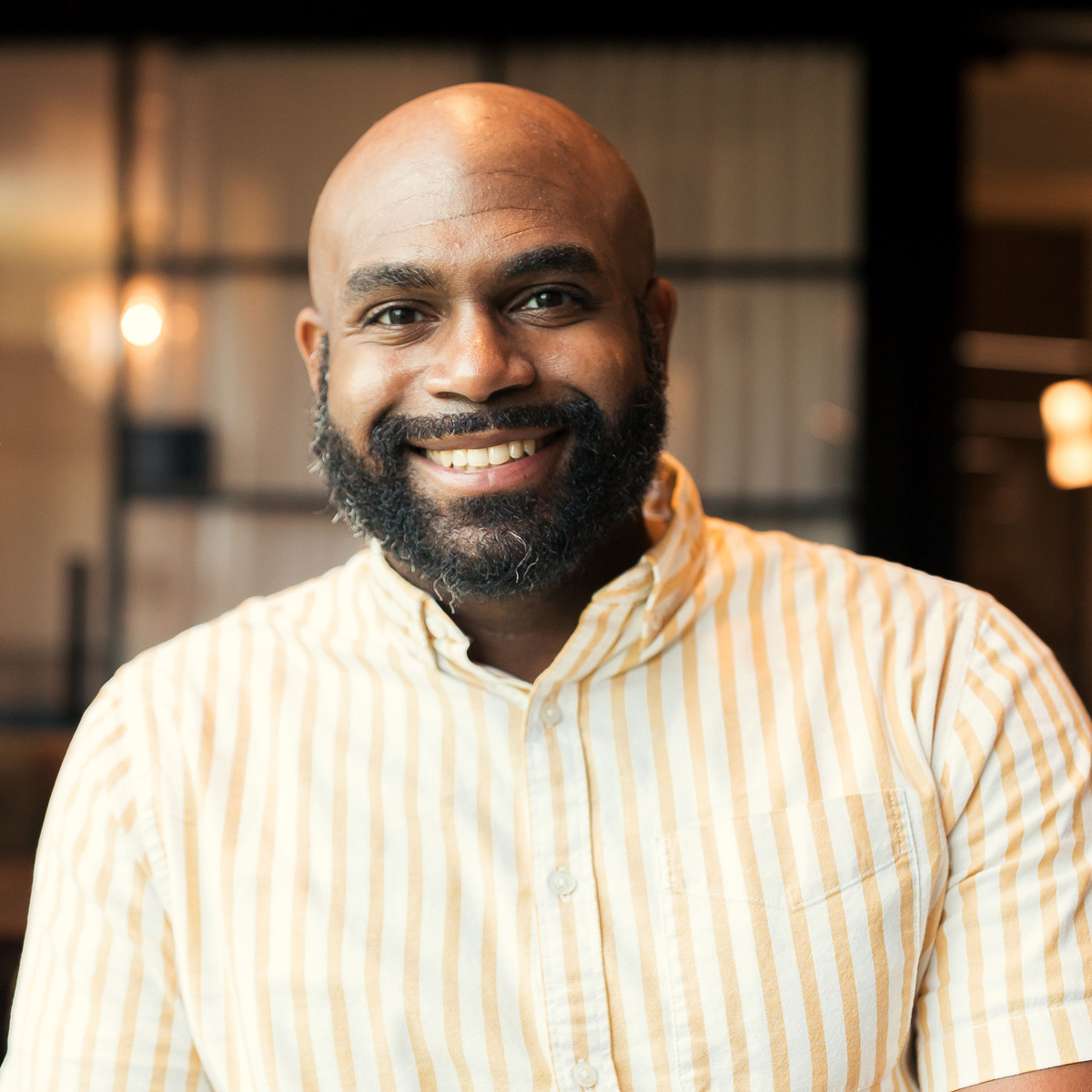
Talladega College
Christopher J.P. Sewell, Ed.D. (he/him/his)
Christopher Sewell is the Dean of the Dr. Jewel Plummer Cobb Honors Program and Associate Professor of Education and Humanities at Talladega College. Previously, he was Associate Dean of Students and Dean of First-Year Students at Williams College and as Curriculum Manager at Praxis Labs. He has worked across the educational spectrum. His scholarship focuses on the experiences of gifted students of color with college access, the transition to college, and the experiences of Black students at Predominantly White Institutions. Dr. Sewell serves on the Editorial Board for the Journal of African American Males in Education (JAAME). He has previously served as the Program Chair for the Multicultural/Multiethnic Education SIG. He earned his Doctor of Education degree in Educational Leadership and Policy from Vanderbilt University, Master of Science in Education from UPenn, Master of Arts in Afro-American Studies from UCLA, and Bachelor of Arts in American Studies and History from Williams College.
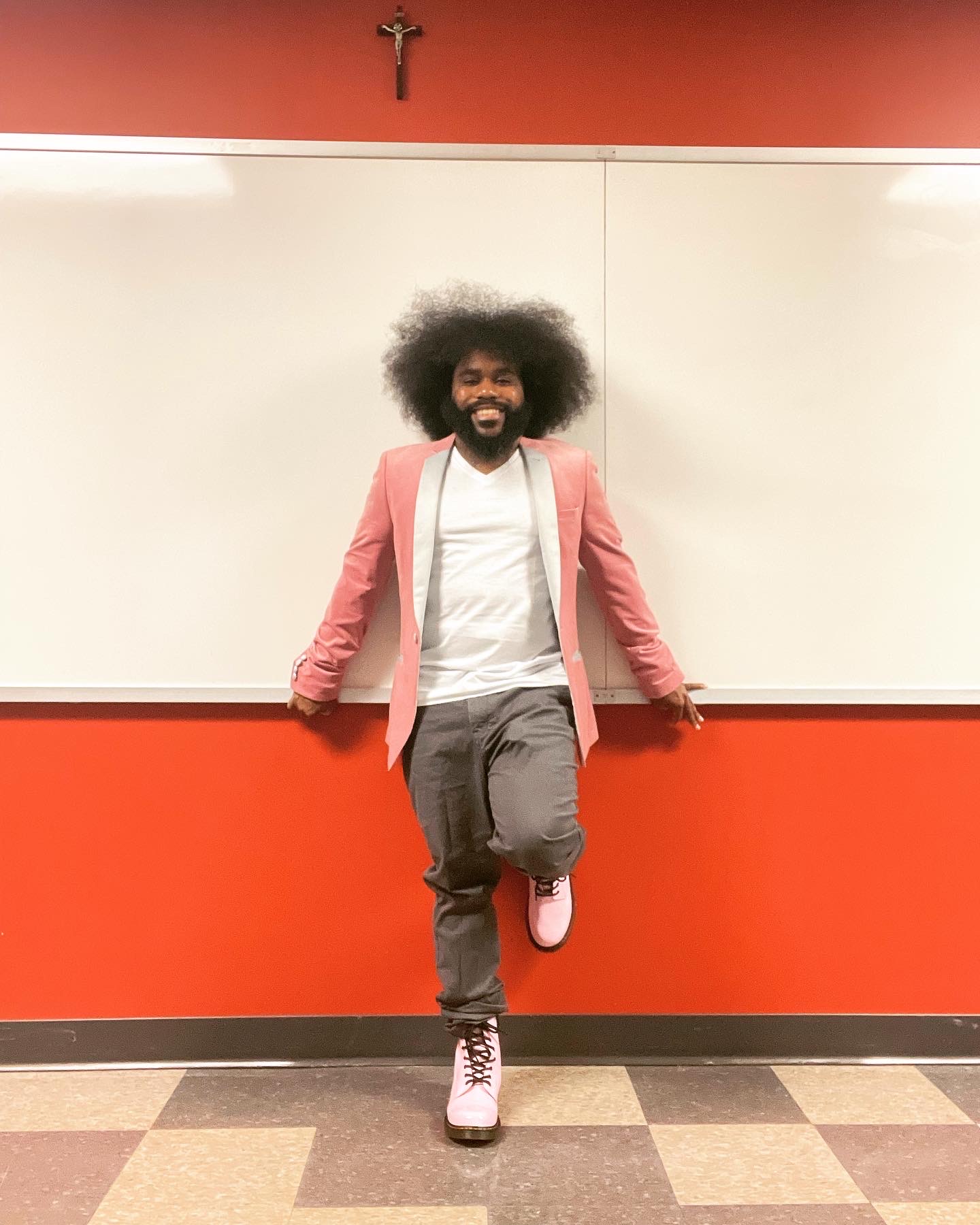
William Shelton (he/him/his)
William Shelton (he/him/his)is a Black Queer educator, writer, and community activist from West Philadelphia. He is pursuing a Ph.D. in Urban Education at The CUNY Graduate Center in New York City. Will’s research examines how the intersections of race, place, and education impact the educational and emotional outcomes of Black and Brown boys, including those that identify on the LGBTQ spectrum. By addressing literacy and School-To-Prison-Pipeline policies and practices, he hopes to dismantle eurocentric narratives in education in order to uplift, affirm, and protect queer and youth of color. His ethnographic and narrative writing research is grounded in critical race theory, queer feminism, humanizing, and abolitionist pedagogies. Will previously taught elementary and secondary ELA classes and served as Dean of Culture before beginning his doctoral journey. He has been published in several media outlets, including The Philadelphia Gay Newspaper and The New Teacher’s Project.
Will is excited to join QTPiE as an Emerging Scholar. He is devoted and passionate about creating safe and healing spaces for queer youth and college-age students. QTPiE will provide me with skills and knowledge to enhance my research. He is excited to learn more about quantitative methods and how to apply such techniques to my ethnographic and narrative research and writing style.
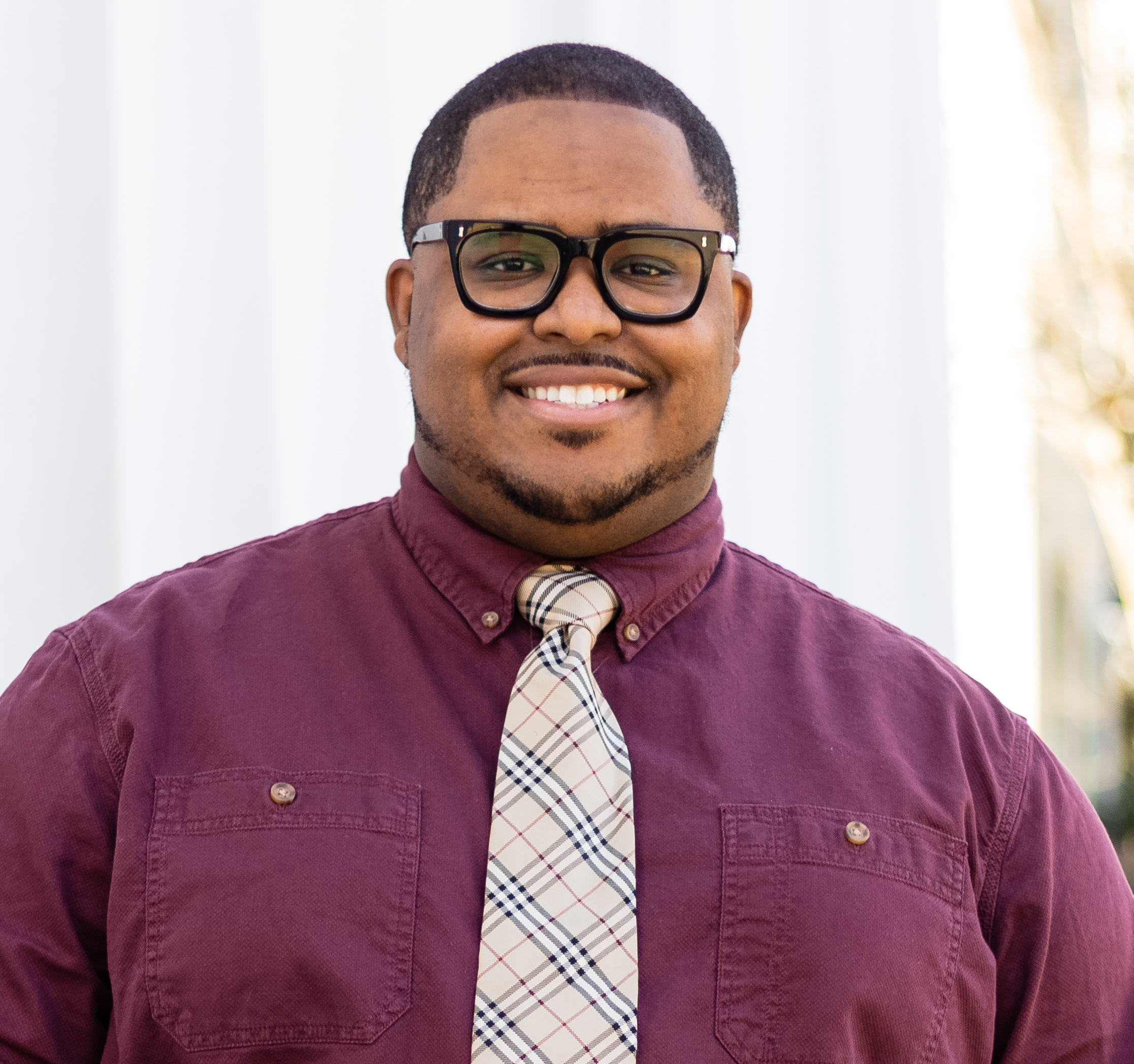
Higher Education and
Student Affairs
Iowa State University
TJ Stewart, Ph.D. (he/him/his)
Terah J. Stewart (he/him) is an assistant professor of higher education and student affairs at Iowa State University. His research and writing focus on people, populations, and ideas that are hypermarginalized and/or individuals with stigmatized identities. Prior to TJ’s faculty life, he worked for several years as a practitioner in Multicultural Affairs which included support of Black Students, Latinx Students, Indigenous Students, Asian Students, Women Students, and LGBTQ students. His research along the lines of queer student experiences specifically stems from his work with college students engaged in sex work/erotic labor. Often missing from existing research, TJ highlights the nuanced perspectives queer students bring moving them from the margins to the center, not only within public discourse but within sex worker movements themselves.
TJ also engages in research about fat students on campus and identity-based student activism and does conceptual and empirical work on antiblackness in non-black communities of color. His work often centers critical disruptive onto-epistemological frameworks and theories to destabilize dominant ways of knowing and being; including Black/endarkened feminist, womanist, and afropessimist perspectives.
I am elated to have been selected to receive the inaugural Black Quare Scholar Grant as a way to further support college student sex workers with racial and sexual minoritized identities. That QTPiE offered this specific opportunity showed me the group’s care and commitment to centering minoritized people even within minoritized spaces. Given that an ethic such as this is important to my own work, I wanted to take part and be in community as we advance our individual and collective work around making higher education, and the world broadly more inclusive and justice oriented as it relates to the liberation of QT folks..
QT Education Policy Research Grant Scholars
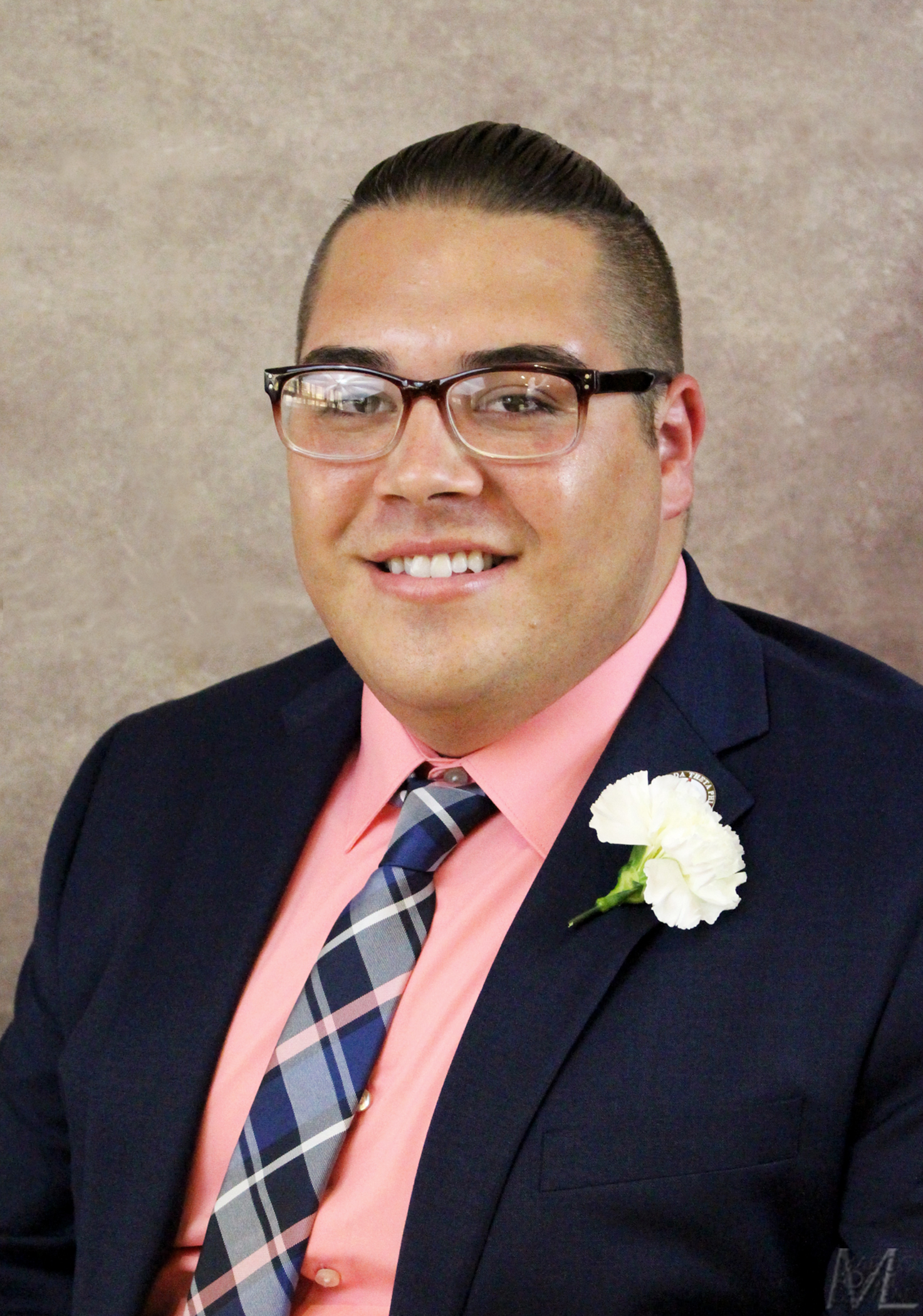
Roberto C. Orozco (he/him/él)
Roberto C. Orozco (he/him/él) is a Presidential Postdoctoral Associate in the Department of Organizational Leadership, Policy, and Development (OLPD) at the University of Minnesota–Twin Cities. His research explores questions around race, ethnicity, gender, and sexuality with relation to college student activism and student development, queer resistance and queer worldmaking in and outside of higher education contexts. He grounds his work at the intersection of Jotería Studies, Critical Race Theory, and Chicana Latina Feminisms to examine the identity and socio-political consciousness of queer Latinx/a/o student activists in higher education. He is particularly interested in how queer Latinx/a/o college students engage in forms of resistance that allow for self-development and consciousness raising while building queer kinships and material possibilities rooted in community.
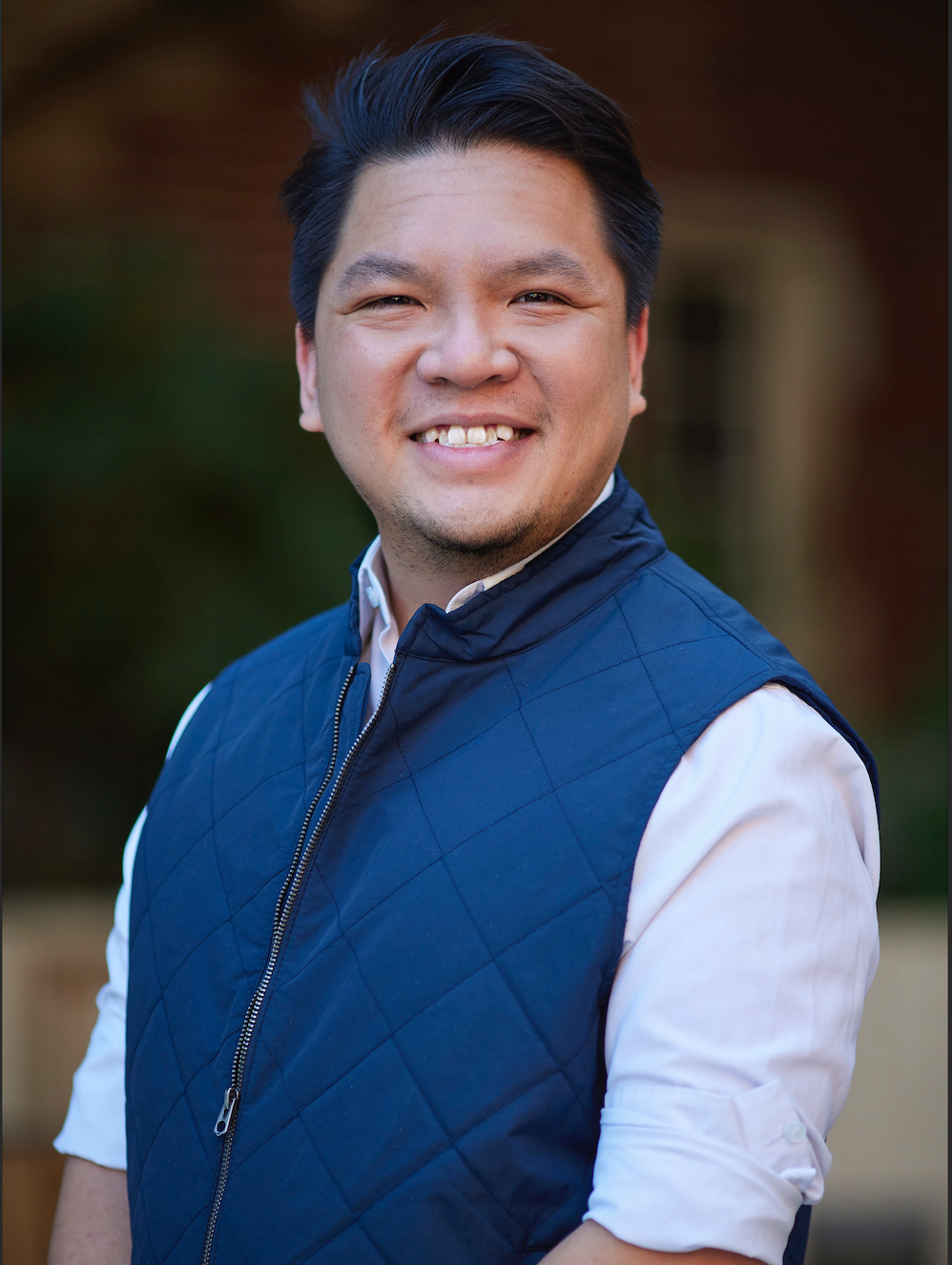
The University of Oklahoma
Quan Phan (he/him)
Quan Phan (he/him) is a doctoral candidate in the Adult & Higher Education program at the University of Oklahoma. Additionally, he holds the position of LGBTQ+ Program Coordinator at the Gender + Equality Center within the same institution. As a dedicated scholar-practitioner in the realm of student affairs, his focus encompasses student success, curricular approaches, and social justice education. His ongoing research delves into LGBTQ+ community spaces and the cultivation of queer/trans worldmaking within the higher education context. As a queer international scholar-practitioner, Phan joins QTPiE with the aim of further exploring and comprehending the intricate relationships and responsibilities between the LGBTQ+ community and higher education institutions. His work also seeks to unravel the implications of these dynamics for policies and practices in the field of Student Affairs.
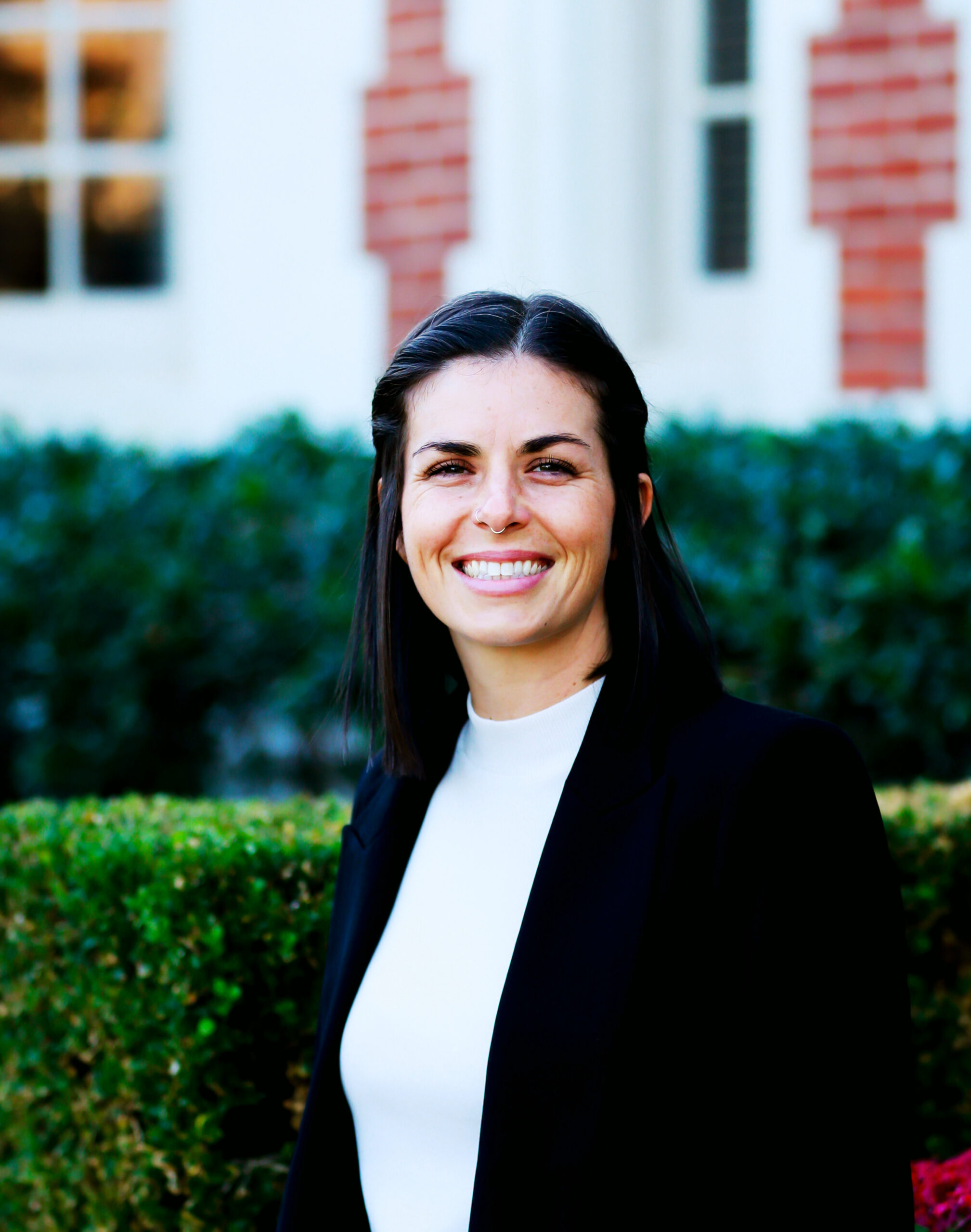
The University of Oklahoma
Jenny Sperling, Ph.D. (she/they)
Jenny Sperling (she/they) is an assistant professor of critical studies in education in the Department of Educational Leadership and Policy Studies at the University of Oklahoma. Prior to joining the faculty at the University of Oklahoma, Jenny completed her Ph.D. in Education at the University of California, Santa Barbara.
Jenny’s research interests include sexual(ity) health education across different educational contexts – with recent work centering young college students with intellectual and developmental disabilities in inclusive postsecondary education programs – K-12 educational practices and policies and their effects on 2SLGBTQIA+ youth communities and experiences, critical ethnographic and intersectional qualitative inquiry, and care-centered community collaborations.
Emerging Scholars
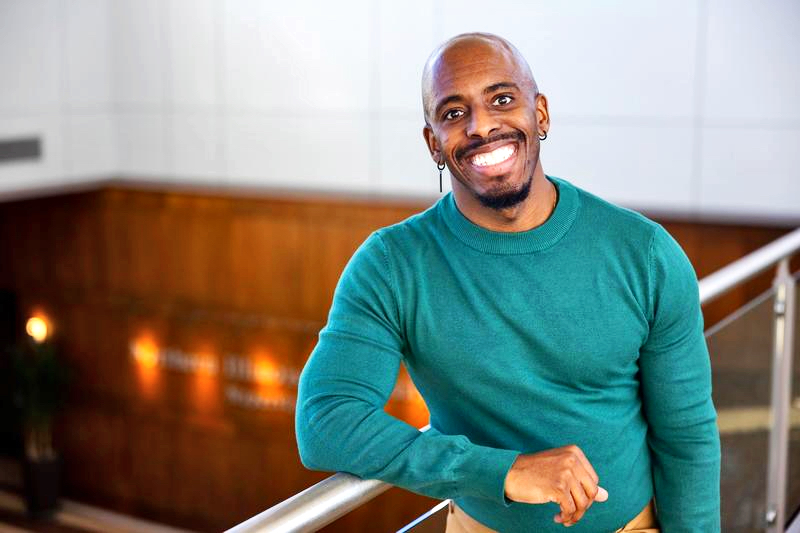
Higher Education
Northern Illinois University
Quortne R. Hutchings (they/them)
Quortne R. Hutchings (they/them) is a first-generation college graduate, proud Ronald E. McNair scholar alum, and assistant professor of higher education at Northern Illinois University. Their research primarily focuses on Black gay, bisexual, queer, and non-binary undergraduate and graduate students’ academic and social experiences in higher education, student affairs professionals’ experiences in student and academic affairs, undergraduate and graduate students’ experiences with substance use and recovery, and utilizing critical qualitative methodologies. Quortne is a practitioner-scholar in student and academic affairs, having professional experiences in academic advising, orientation, multicultural affairs, TRiO programs, and leadership development. Their research has been published in the Journal of College Student Development, International Journal of STEM Education, Departures in Critical Qualitative Research, Journal of Higher Education, and International Journal of Qualitative Studies in Education.
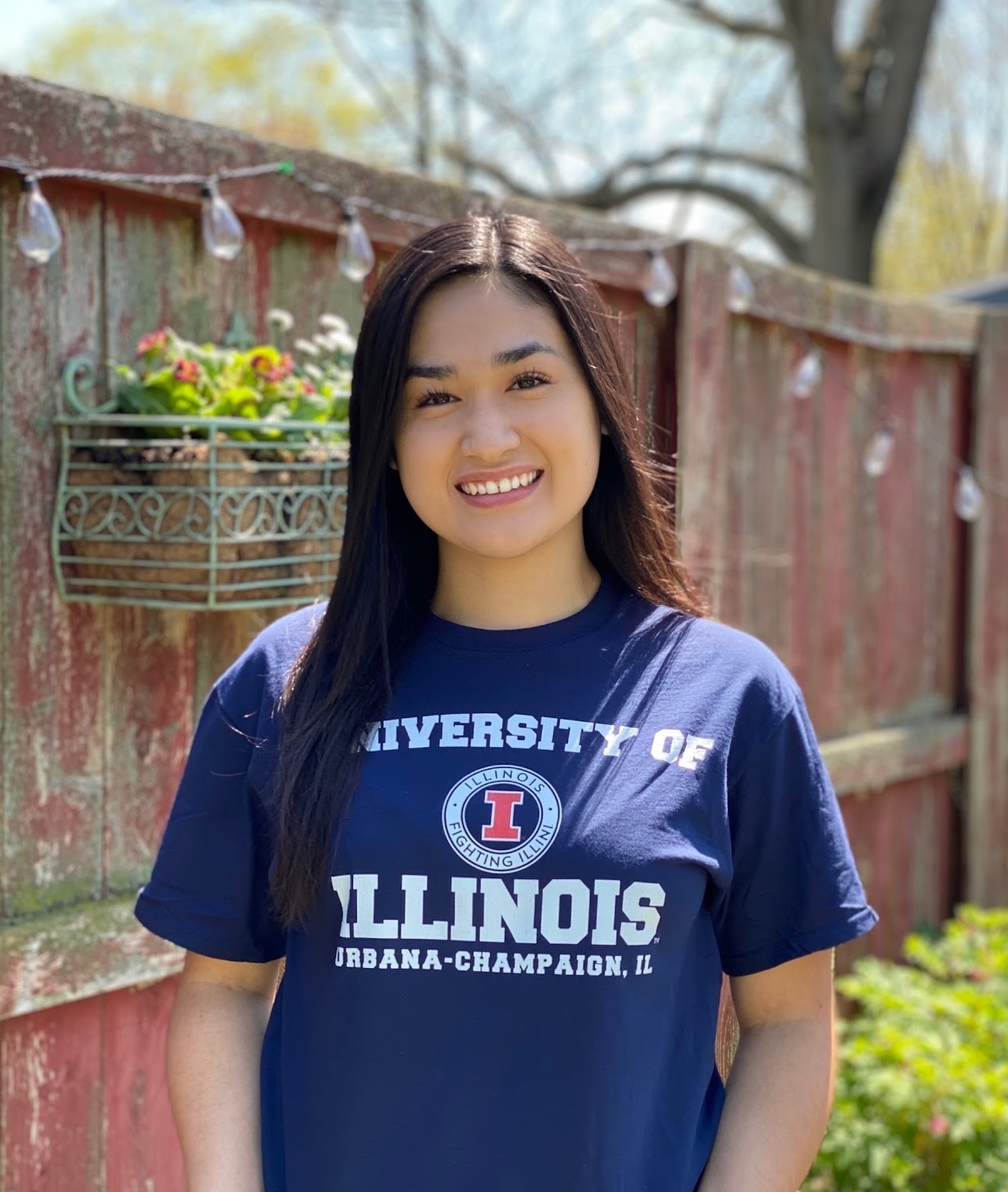
Educational Psychology
University of Illinois at Urbana-Champaign
Giovi Kelly (she/her)
Giovanina (Giovi) Kelly (she/her) is a Ph.D. student in Educational Psychology within the Counseling Psychology division at the University of Illinois at Urbana-Champaign (UIUC). Her research interests include LGBTQIA+ identity and development and how stigmatization of this social identity impacts psychological well-being. Additionally, Giovi is interested in the developmental processes of “coming out” for sexual minority individuals. Before joining the doctoral program, she completed her master’s degree at UIUC in Mental Health Counseling, where she was trained as a clinician utilizing therapeutic techniques such as cognitive-behavioral therapy (CBT), while taking a person-centered/humanistic approach.

Educational Leadership and Policy Studies
The University of Texas
at San Antonio
Shae Large (she/her)
Shae Large (she/her) is a Ph.D. student at The University of Texas at San Antonio (UTSA) in the Educational Leadership and Policy Studies program with a concentration in Higher Education. Her research interests focus on the practice of pronoun sharing through a demographic lens. Shae is originally from Corpus Christi, TX, and has a Bachelor’s (B.A.) in Psychology from Texas A&M University-Corpus Christi and a Master’s (M.Ed.) in Higher Education Administration from UTSA. Shae also works full-time at UTSA as a catalog editor and enrollment reporter. Shae is looking forward to working as a Summer QTPiE Emerging Scholar and engaging with a community of queer quantitative peers.
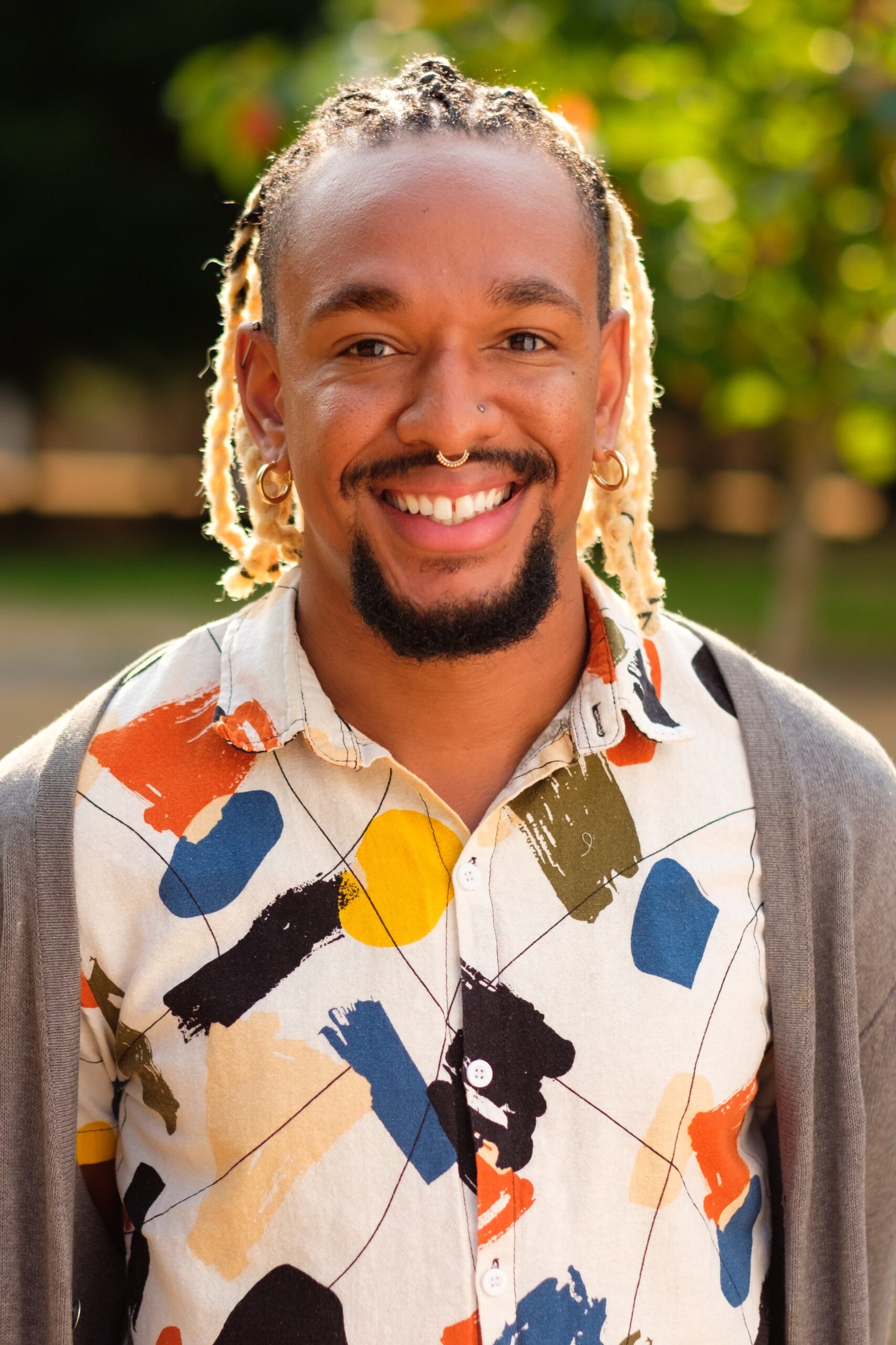
Social Work
University of Washington
Isaac Andrew Sanders (they/them)
Isaac Andrew Sanders (they/them) received their BA from the University of Tulsa and their MSW from the University of Kansas. Sanders grew up as a military brat with firm familial roots in Kansas & Oklahoma. An afro-indigenous two spirit non-binary person, affiliated with the Muskogee tribe, Sanders’ work is influenced by their lived experience and devotion to equity. Sanders is interested in youth homelessness, its disproportionate impact on LGBTQ+ and BIPOC young people, and ways to bring the homelessness response system into the 21st century. Sanders has worked, primarily, in the youth homelessness field. Sanders has led multiple counties in Washington to functionally reduce their active youth homeless population. An expert in positive youth development strategy, Sanders has worked with youth and young adults to impact governmental and local change through empowering young adults to advocate for change while demanding providers listen. Sanders has also co-authored two published articles, one being academic poems, focusing on the experiences of rural trans/ gender non-conforming youth.
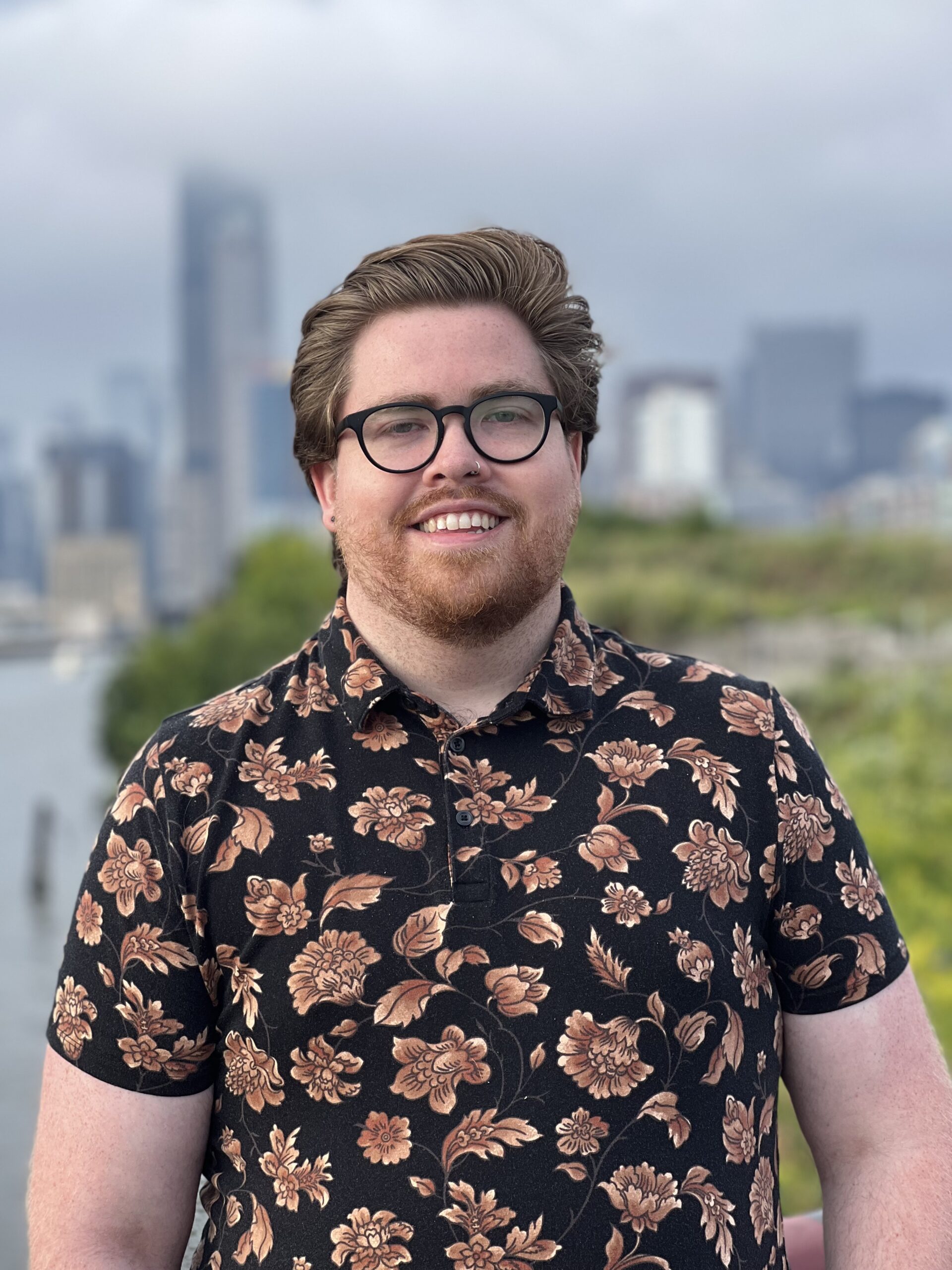
Policy Studies in Urban Education
University of Illinois Chicago
Daniel Wilson (he/him)
Daniel Wilson is a Ph.D. student in the Policy Studies in Urban Education (Social Foundations) program at the University of Illinois Chicago, where he also works full-time in student affairs assessment. His research interests center around queer and trans student activism and queer school abolition. Outside of work and school, he enjoys bonding with his dog, trying new recipes, and pursuing an amateur career in stand-up comedy. Prior to attending UIC, he got his M.Ed. in Higher Education Administration at Vanderbilt University and his B.S. in Biology at St. Norbert College.
He is thrilled to be joining the QTPiE team as an emerging scholar this summer. Particularly, he is excited to learn and grow alongside the rest of the team and deepen his skills as a quantitative researcher in the pursuit for queer and trans educational liberation.
QTPiE Alum:
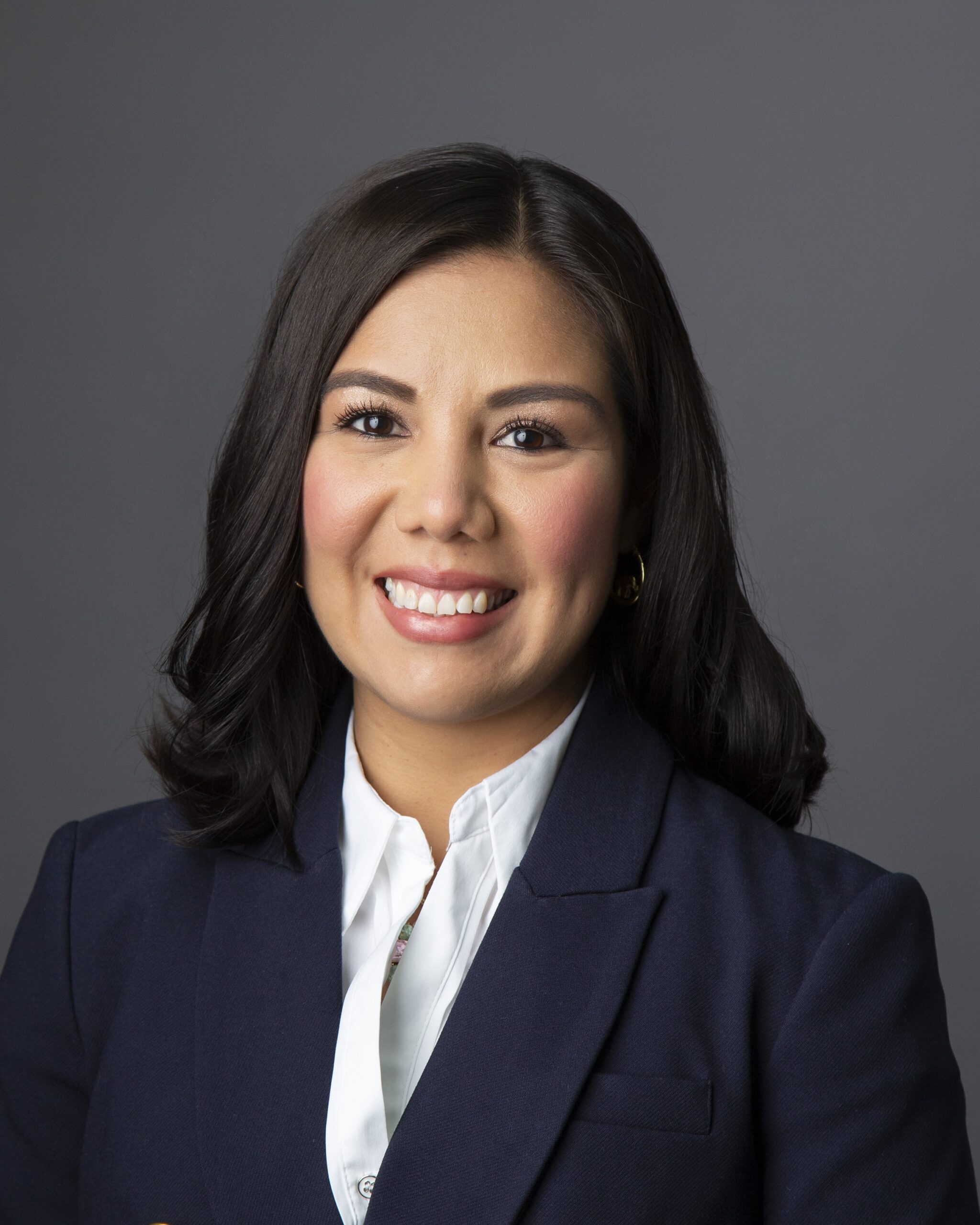
Yolanda Cataño, Ed.D. (she/her/ella)
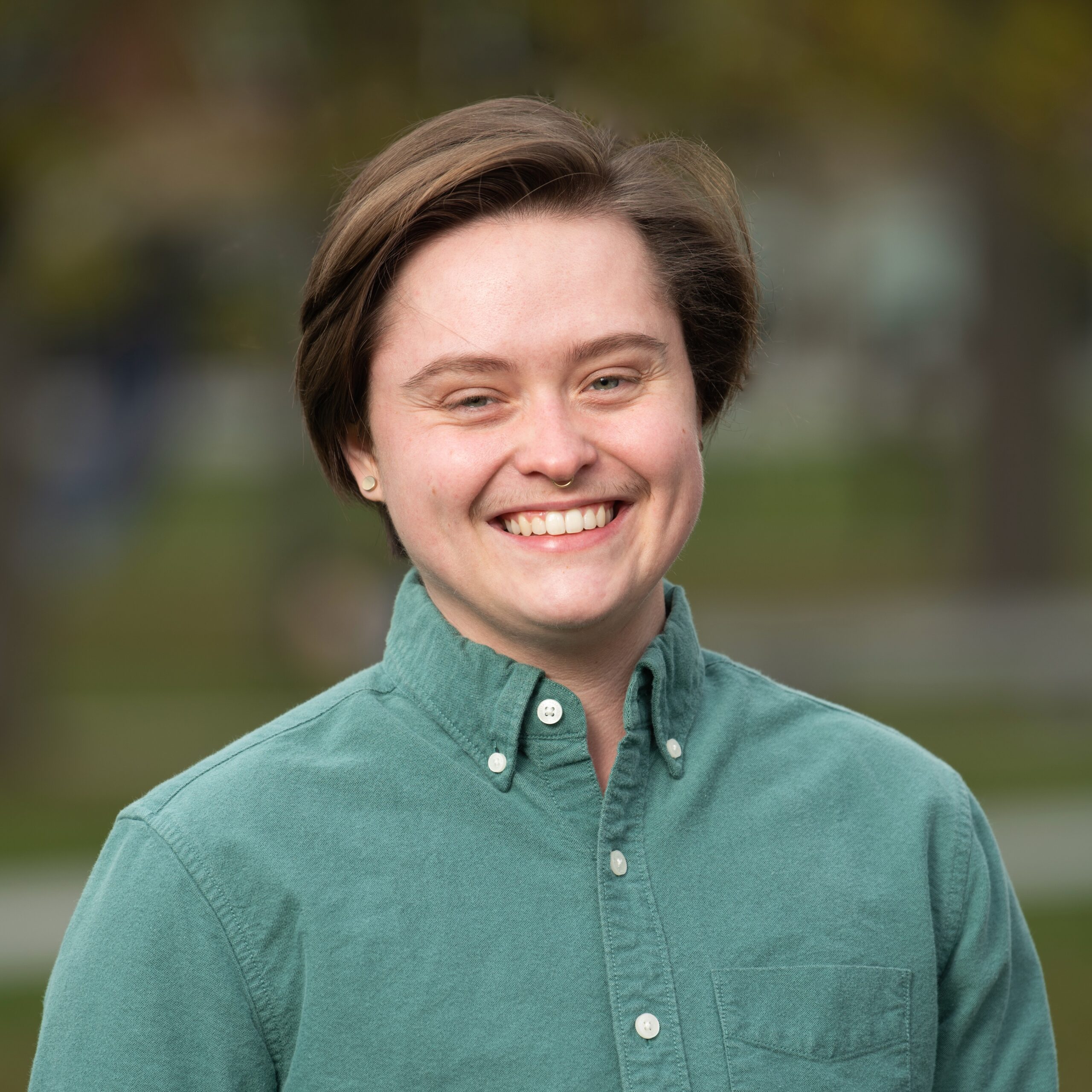
Max Cordes Galbraith, M.Ed (he/they)
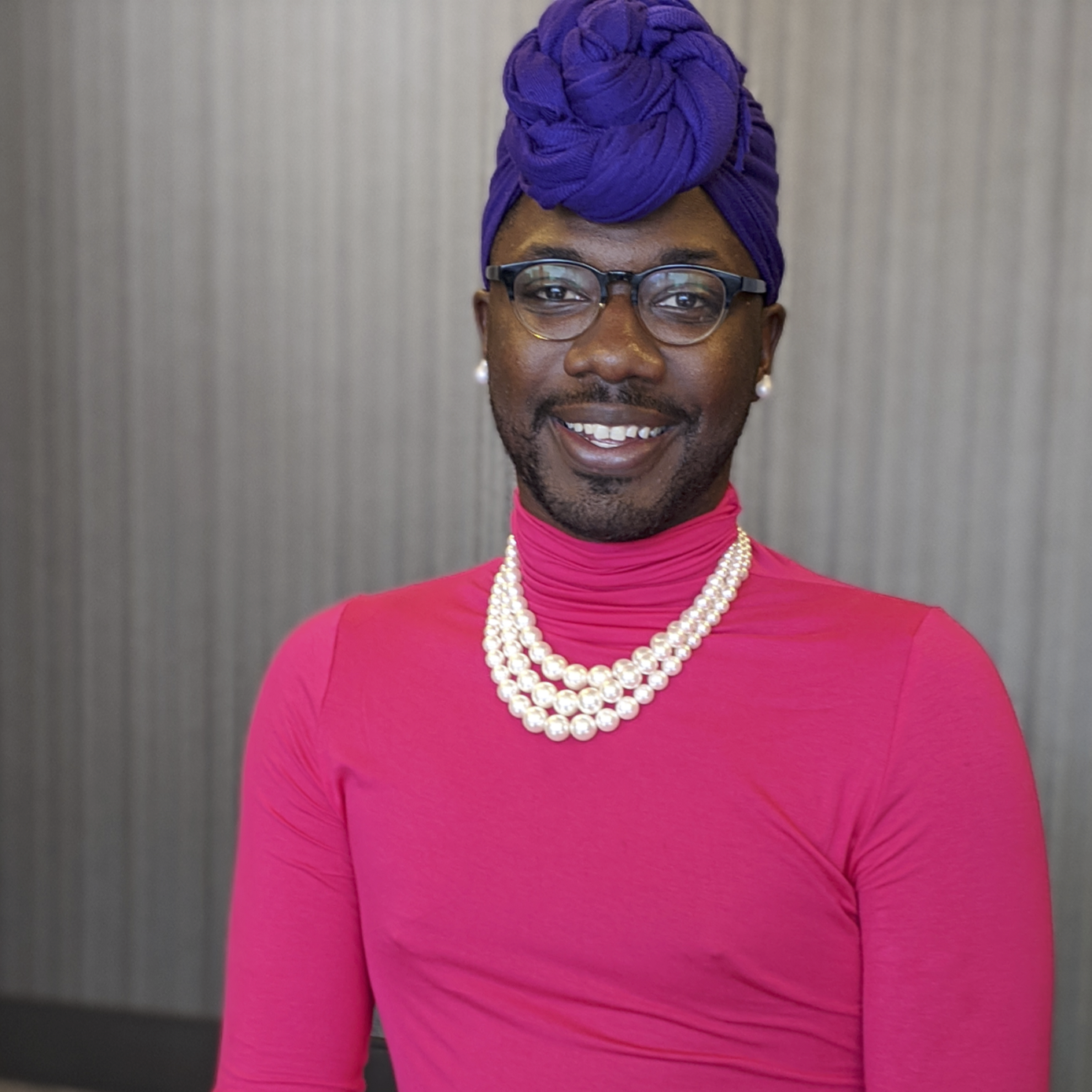
Romeo Jackson (they/them/theirs)
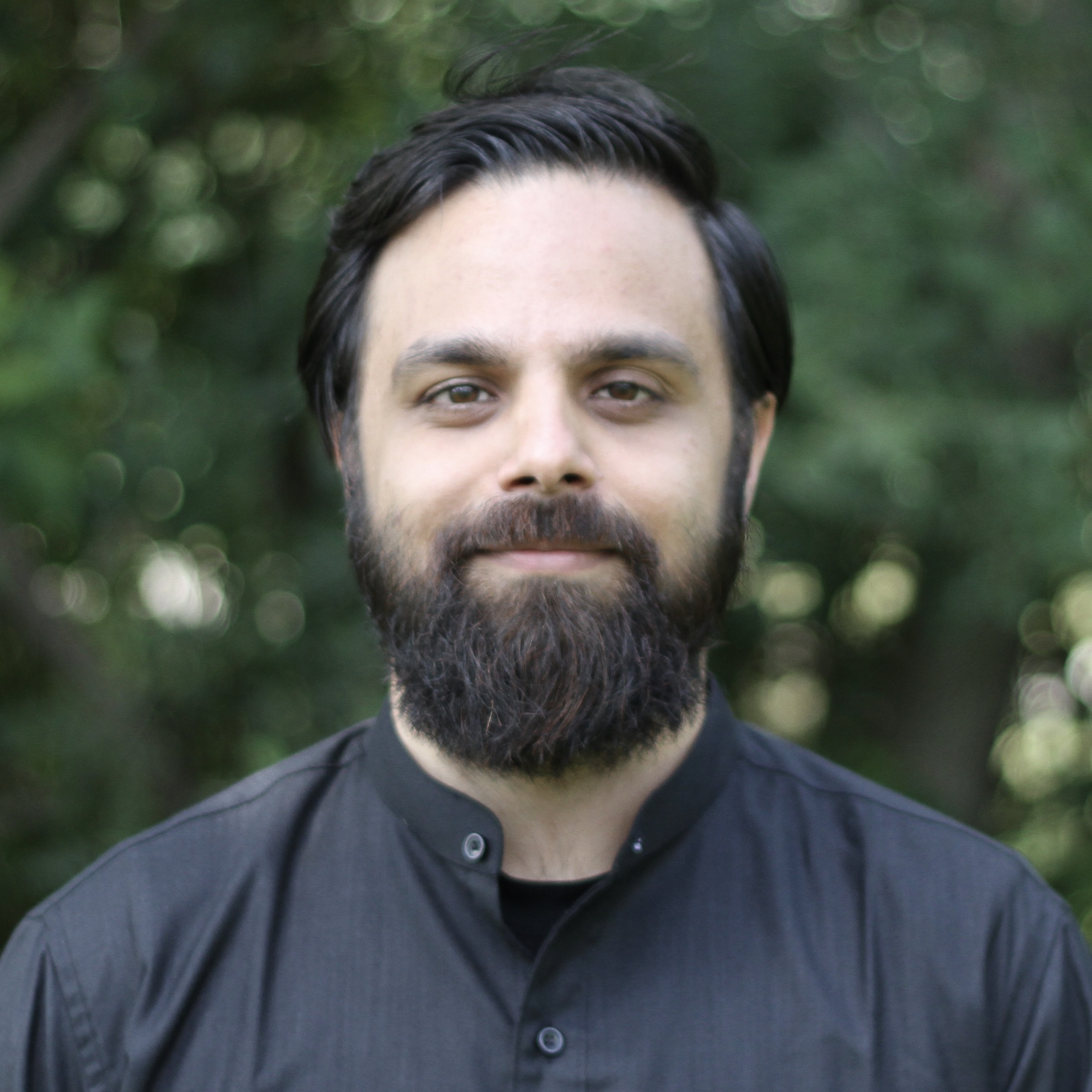
Anil Lalwani, Ph.D. (he/they)

benjamin lee hicks, Ph.D. (they/them/theirs)
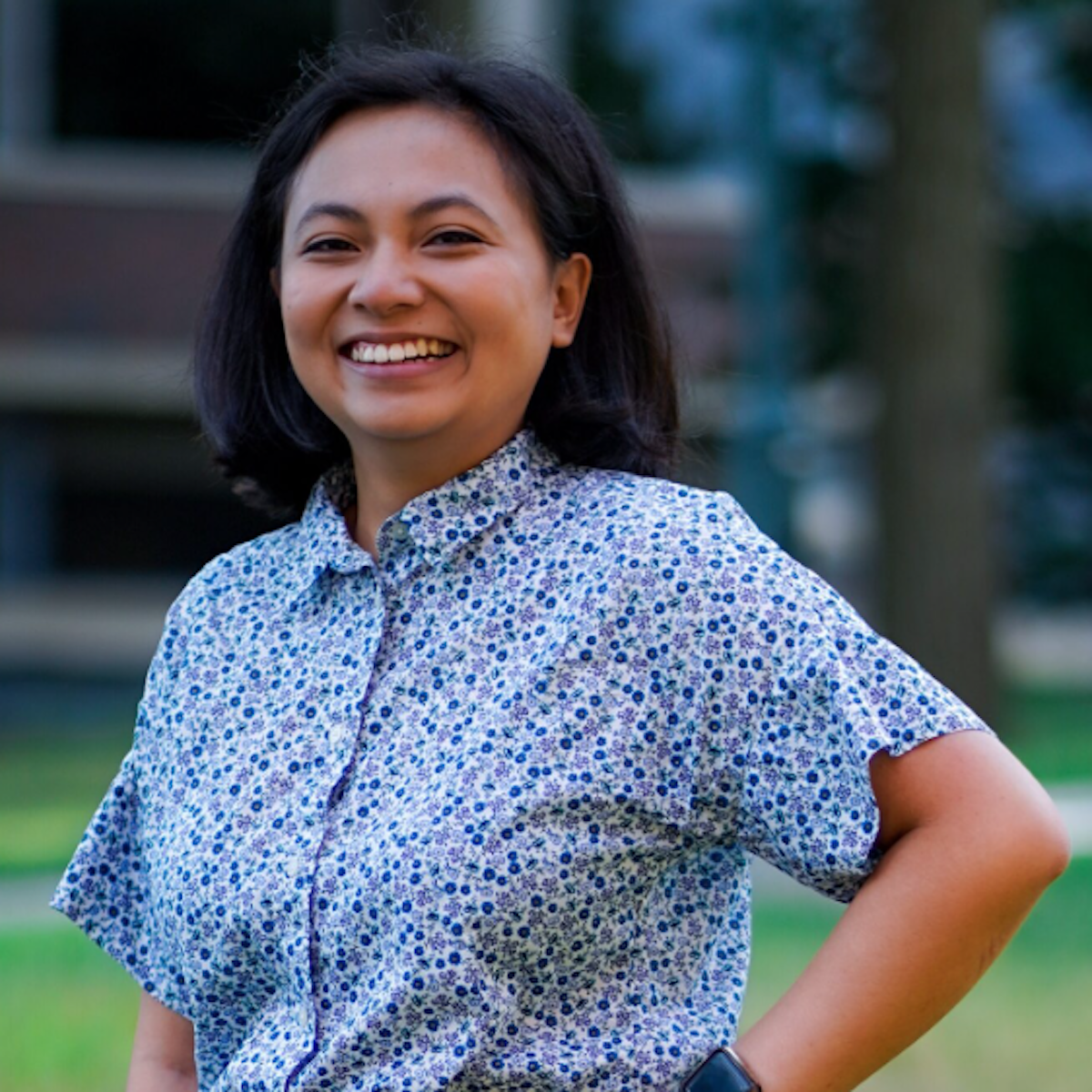
Janelle Raymundo, M.Ed (she/her/hers)
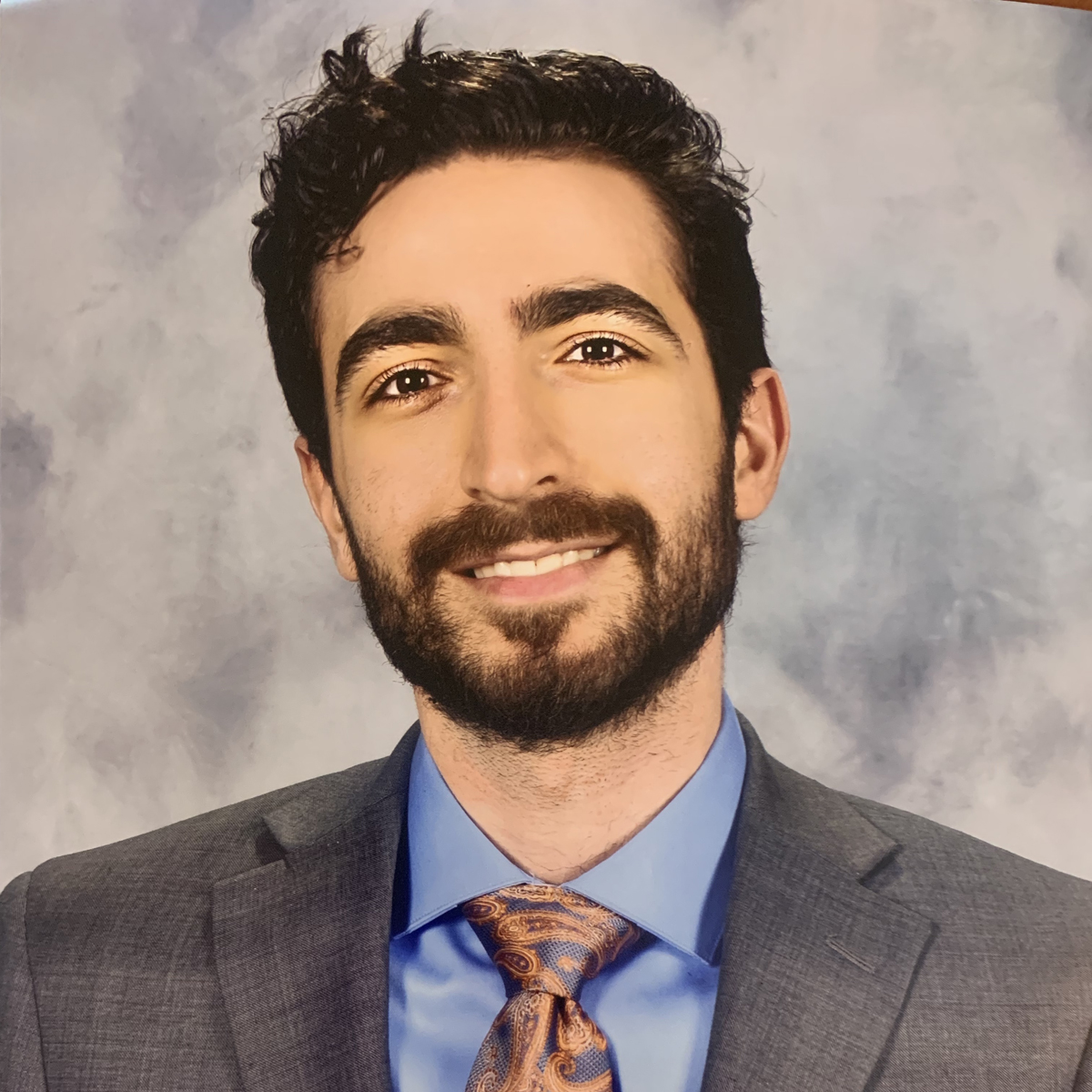
Musbah Shaheen (he/him/his)

Johann Robert Wood, MA/MFA (he/they)